Por Joanna Puddister King
JACKSON – Después de un estudio cuidadoso y una consulta con el clero, el obispo Joseph Kopacz levantará la dispensa general de la obligación dominical de asistir a la misa, a partir de la fiesta de Corpus Christi, de la Misa de vigilia el sábado 5 de junio de 2021.
En una carta publicada por la diócesis, el 20 de mayo, el obispo Kopacz declara: “La obligación dominical será restaurada en esta gran fiesta cuando podamos satisfacer nuestra hambre por el Pan de Vida, en la Palabra y Sacramento con la recepción de la Sagrada Comunión.”
El obispo Kopacz recuerda a los fieles en su carta que tengan también en cuenta que la iglesia siempre dispensa a aquellos que enfrentan problemas de salud graves. “Por lo tanto, alguien puede tomar válidamente la decisión de asistir a Misa, si puede, durante la semana y participar en la Misa el día del Señor a través de la transmisión en vivo.”
Además de levantar la dispensa general de la obligación de la Misa dominical, la diócesis modificó sus protocolos durante la pandemia. Las directivas, que representan una combinación de protocolos publicados anteriormente, detallan cómo las parroquias pueden avanzar hacia operaciones más normales, adoptando un enfoque gradual, con una mirada atenta a los desarrollos y la orientación del Centro para el Control de Enfermedades (CDC) y el Departamento de Salud del Estado de Mississippi.
El distanciamiento social será de 3 pies para las Misas y las parroquias pueden usar cada banco para decidir cómo escalonar los asientos para mantener el distanciamiento social.
Además, las máscaras ya no se requieren en la Misa, pero se recomiendan para aquellos que no están vacunados y para niños y jóvenes menores de 16 años. Sin embargo, los sacerdotes y ministros eucarísticos deben usar máscaras al distribuir la Sagrada Comunión.
Con los cambios, algunas cosas seguirán igual. Todavía se anima a recibir la Sagrada Comunión en la mano y los feligreses deben usar desinfectante de manos al entrar a la iglesia.
Los protocolos actualizados también incluyen directivas sobre reuniones, encuentros, así como actividades para jóvenes y la Escuela Bíblica de Vacaciones.
Los párrocos y su personal pastoral son responsables de la ejecución segura y prudente de las directivas, reconociendo que cada parroquia tiene circunstancias únicas. El objetivo es continuar proporcionando un lugar seguro, para la adoración mientras se mantiene un nivel de confianza en todo el pueblo de Dios.
El 13 de mayo, el CDC modificó la guía para el uso de máscaras para las personas completamente vacunadas, lo que les permitió dejar de usar máscaras al aire libre en multitudes y en la mayoría de los entornos interiores. La guía todavía exige el uso de máscaras en entornos interiores abarrotados como autobuses, aviones, hospitales, prisiones y refugios para personas sin hogar.
El padre Lincoln Dall, vicario general de la diócesis, declaró al final de las directrices: “Queremos agradecerles a todos por sus esfuerzos para mantener seguros a nuestros feligreses durante la pandemia. Reconocemos que todos estamos muy cansados de lidiar con la pandemia. … Sin embargo, reconocemos que todavía no es el momento de bajar la guardia por completo. Continuaremos monitoreando la situación y emitiremos lineamientos modificados cuando la realidad de la pandemia cambie.”
Para ver la carta del obispo Kopacz levantando la dispensa y para una lista completa de los protocolos actualizados, visite https://jacksondiocese.org/public-health-concerns/
Updates
New Orleans Archbishop committed to ending segregation, remembered by Bishop Emeritus
From the Archives
By Mary Woodward
JACKSON – This week I am highlighting a neighbor to the south of us – Archbishop Joseph F. Rummel, who was Archbishop of New Orleans from 1935 to his death in November 1964. His tenure runs almost parallel to our own Bishop R.O. Gerow (1924-66).
In talking with our Bishop Emeritus, Joseph Latino, who grew up and went to seminary during the Rummel years, Bishop Latino shared some insight into the life of the archbishop saying he was very much committed to ending segregation even in the face of strong push back from Catholic community and business leaders. An interesting timeline develops beginning in 1949.
It seems in 1949, Archbishop Rummel canceled an outdoor liturgy when city officials would not allow African American Catholics to participate. In 1950 he had “White” and “Colored” signs removed from churches. Rummel mandated an end to the practice of making African American Catholics receive Communion last in 1953. These measures met with resistance from laity and clergy.
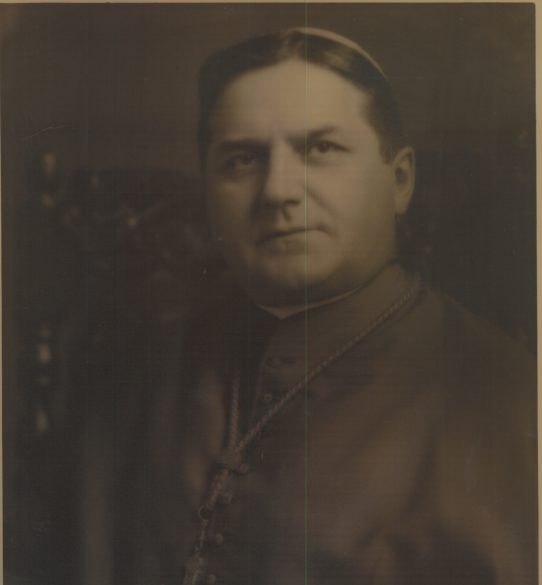
To ground his efforts solidly in Catholic theology, Rummel issued a letter to be read in all parishes Feb. 11, 1956. Now Rummel was famous for his long letters to be read to parishioners at Sunday Masses, but this one rocked the entire archdiocese. The letter was laying groundwork to integrate the archdiocesan school system. In the letter Rummel gives three main points quoted below courtesy of the Archdiocese of New Orleans Archives.
“Racial segregation is morally wrong and sinful ‘because it is a denial of the unity and solidarity of the human race as conceived by God in the creation of man in Adam and Eve. Male and female He created them and breathed into them the spirit of life and commanded them to increase and multiply and fill the earth. Throughout the pages of the Old Testament and the New there is constant recurrence of this truth, that all mankind has in Adam and Eve one common father and mother and one common destiny, namely, to serve God in this world and find eternal happiness with Him in the world to come.
“Racial segregation is morally wrong and sinful because it is a denial of the unity and universality of the Redemption. The Eternal Son of God, Christ Jesus our Lord, came into the world to redeem and save all men, to die for all men on the cross, to make the life of grace available through the Church and the Sacraments for all men, to embrace all men in His Mystical Body on earth and in the life of glory in heaven. Racial segregation would draw the color line across the inspiring plan of the Redemption and thus sin against the divine providence. the love and the mercy that conceived and carried out the wonderful Mystery.
“Racial segregation is morally wrong and sinful because it is basically a violation of the dictates of justice and the mandate of love, which in obedience to God’s will must regulate the relations between all men. To deny to members of a certain race, just because they are members of that race, certain rights and opportunities, civic or economic, educational or religious, recreational or social, imposes upon them definite hardships and humiliations, frustrations and impediments to progress which condemn them to perpetual degradation which is only a step removed from slavery. Such indignities are grievous violations of Christian justice and charity, which cannot be justified in this modem age of enlightenment and loudly proclaimed democracy.”
Rummel concludes the letter aware of opposition by calling for calm and prayer: “May we likewise unite in prayer that the decision, when made, will be accepted in the spirit of Christian charity and justice and in that unity of mind, heart and will, which must always characterize the family of God. This is a problem which should be worked out not in an atmosphere of wrangling or contention or discord or hatred but in a spirit of conciliation and with a desire to achieve peace through justice and charity. Prayer and calmness of spirit are much needed in all our hearts, and for these we plead in the name of the Divine Prince of Peace…”
Despite warnings of possible excommunication, local Catholic political, business and community leaders formed opposition groups to combat Rummel’s move to push for integrated Catholic schools in 1957. They even appealed to the Vatican but were rebuffed by the Holy See. Rummel was even the recipient of a burning cross on the front lawn of the archbishop’s residence.
Ultimately, three leaders were excommunicated, but the opposition continued and delayed the integration plans of Rummel. One reason for delaying was the recognition that white Catholics would leave Catholic schools if integrated and go to the public schools which were not yet integrated. So, archdiocesan leaders advised Rummel to wait to integrate Catholic schools until the public schools integrated in 1960.
In listening to Bishop Latino talk about his memories of all the events, he lamented the fact Archbishop Rummel suffered greatly from the intolerance and disrespect, but admired Rummel’s steadfastness in his mission in the face of that suffering. Latino even remarked that the church missed an opportunity to make a bold statement to the world by bestowing Rummel with the red hat of a Cardinal – honoring a man with principles like rails of steel from which he did not waiver.
In future articles, we will explore the integration of Catholic schools in our diocese which has a similar path though I am not aware of any excommunications. We also will throw in some more insights from our Emeritus.
(Mary Woodward is Chancellor and Archivist for the Diocese of Jackson)
Deacon Bowden set his sights on the priesthood at a young age
By Joanna Puddister King
JACKSON – From an early age, Andrew Bowden had a heart for service. On May 15, he continued that call as he was ordained a transitional deacon at his home parish of St. Jude in Pearl. He will serve as a deacon until ordination to the priesthood next year.
“The first time that I remember him saying anything about wanting to be a priest, he was about kindergarten age,” said his mother, Rhonda Bowden, who coordinates liturgy and pastoral care at St. Jude.
Deacon Bowden recalled attending a Mass around that age, celebrated by Bishop William Houck, that sparked his interest in religious life.
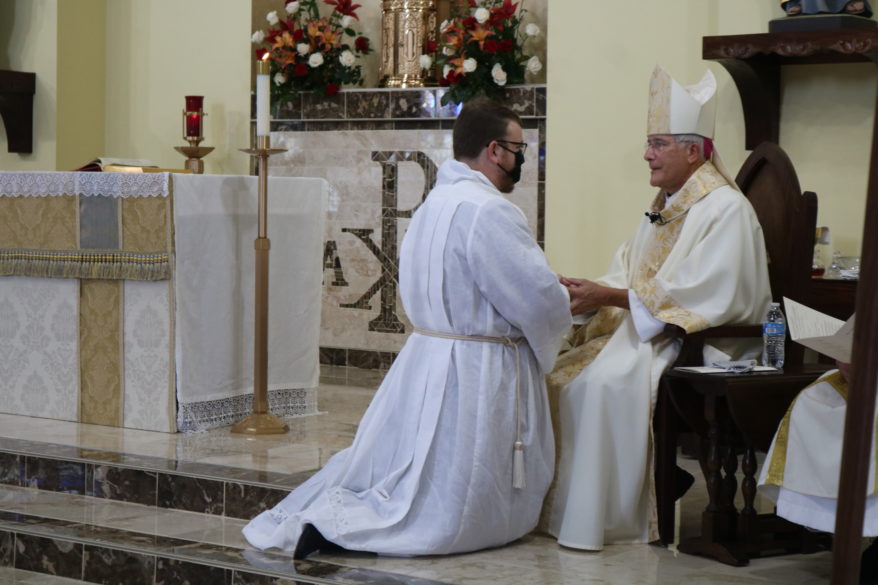
“He had an incredibly powerful voice, and I was impressed by him. So impressed that the next time I saw my pastor, Father [Martin] Ruane, I announced to him that I wanted to be a bishop,” laughed Deacon Bowden.
Father Ruane, who passed in 2015, was a great influence on young Bowden. His sense of humor, humble nature and his joy were attributes that Bowden wanted to emulate. “I don’t remember exactly how he responded to the four-year-old declaring that he wanted to be bishop, but he was able to replace that idea … with the desire to become a priest,” said Deacon Bowden.
Around the same time, Bowden also started talking about wanting to be an altar server. Although Father Ruane’s policy was that alter servers must be in the fourth grade, he graciously did an abbreviated training session just for Bowden in the third grade, shortly before he left St. Jude for a new assignment.
“Altar serving then became a major part of my pre-discernment,” explained Deacon Bowden. “Through altar serving at St. Jude as I grew up, I began to love God, the church and the priesthood in a much deeper way.”
Bowden was also actively engaged in St. Jude’s youth group and enjoyed sharing his faith and teaching the younger altar servers.
His mother, Rhonda couldn’t recall any other possible vocation or career path her son ever mentioned, other than around four years old saying that he wanted to be an architect priest who would build churches and work in the church, imagining as only a child can, to also build underground tunnels to his house so that he could eat lunch with her every day.
By the end of high school, Deacon Bowden strongly felt he was being called to the priesthood. Father Jeffrey Waldrep, who was pastor at St. Jude in Bowden’s high school years inspired his interest in liturgy and was helpful to him as he entered the formal discernment process for priestly formation.
His parents were extremely supportive of his desire and after graduating from Brandon High School in the spring of 2014 he completed his application for the seminary just as Bishop Joseph Kopacz arrived in the diocese.
“We strongly encouraged Andrew to have a ‘backup-plan’ in case the new bishop was not eager to send an 18-year-old to seminary college. [But], he was adamant that God’s will would prevail, and that God would make a way for him. And God did,” said Bowden’s mother.
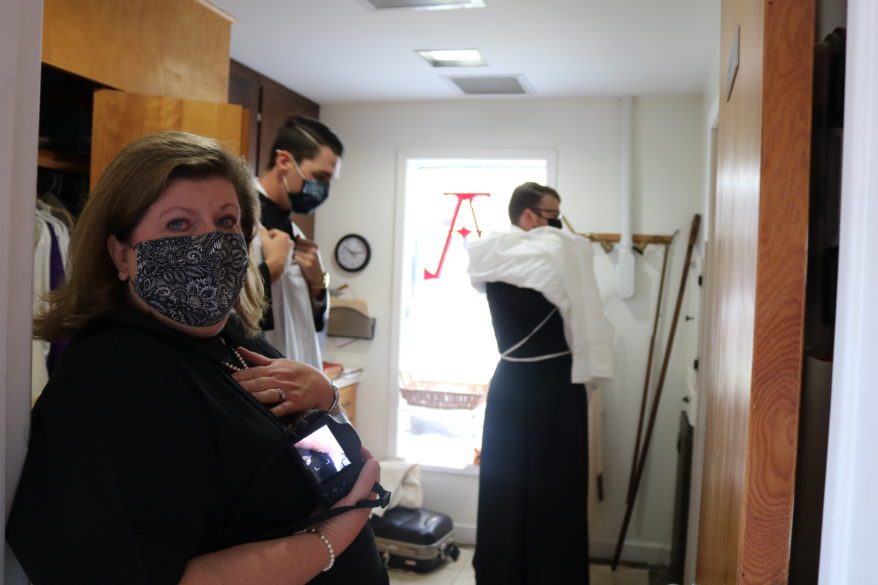
Bowden spent four years at St. Joseph Seminary College in Covington, Louisiana and moved on to Notre Dame Seminary, where he just completed his third year before being ordained a transitional deacon on May 15.
“During the diaconate internship we try to place our men in parishes that will give them a wide range of experiences,” said Father Nick Adam, director of vocations, who first met Bowden in high school, while he was in seminary school.
“This will be the first time a seminarian baptizes a baby, witnesses a wedding or presides at a funeral, and we want to make sure they have plenty of opportunities to dive into parish life and walk with families in this way.”
Those in the transitional diaconate are also tried to be place at a parish with a school so they can be a part of the day-to-day life of the kids and faculty. A great place for that is at St. Mary Basilica and Cathedral School in Natchez, and Bowden is looking forward to his service to the community.
“During seminary, I have greatly missed the local expression of the church that is the Diocese of Jackson. I am greatly looking forward to spending the next few months in Natchez with Father [Scott] Thomas and Father [Mark] Shoffner. … It will be so good to get to know people there and learn how I can serve them best,” said Deacon Bowden.
During his diaconate ordination, Bowden’s mother cried ‘happy tears.’ “Seeing my son so happy and knowing that he was responding to God’s call made my heart sing with joy.”
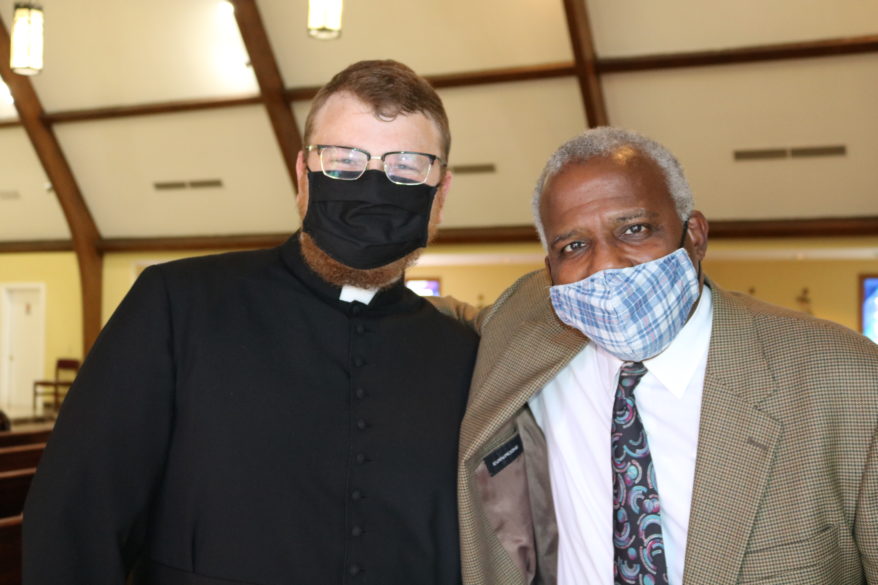
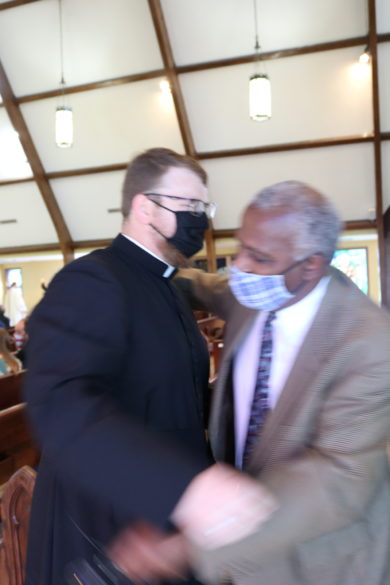
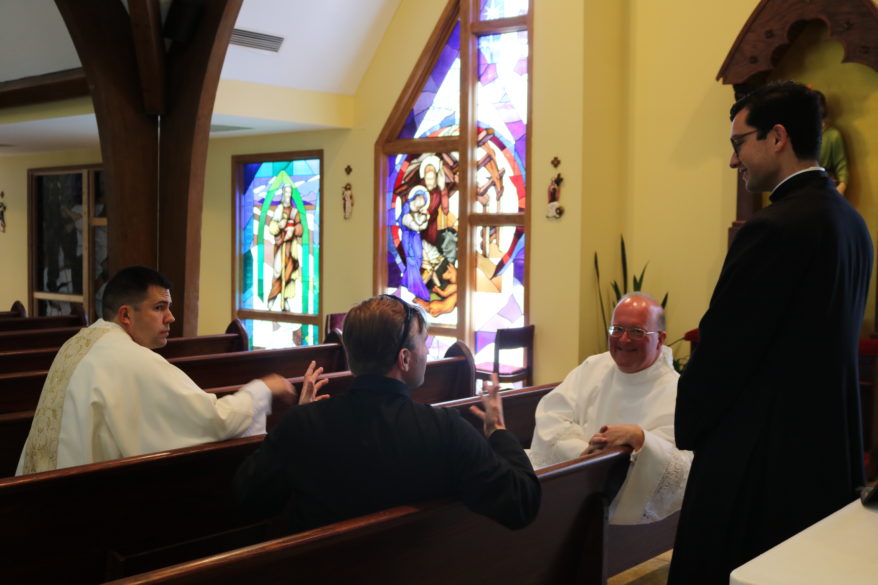
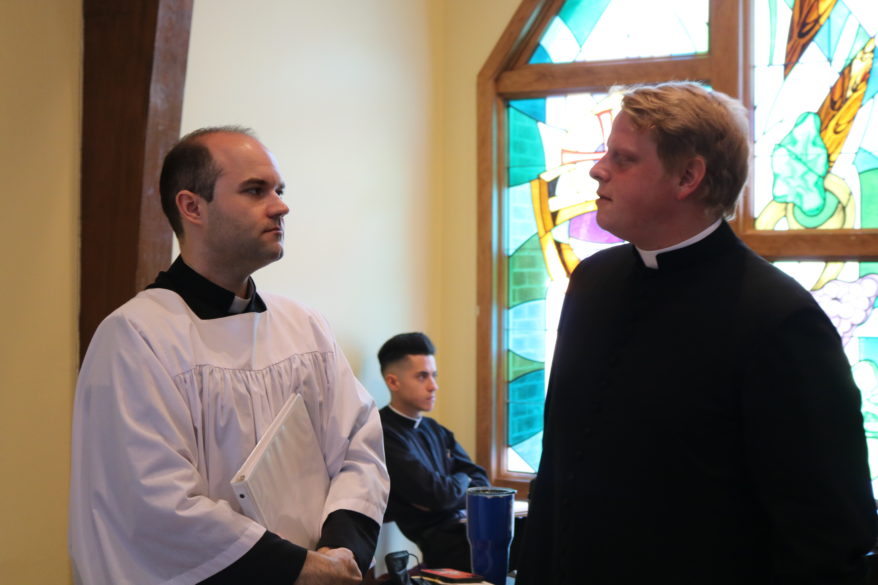
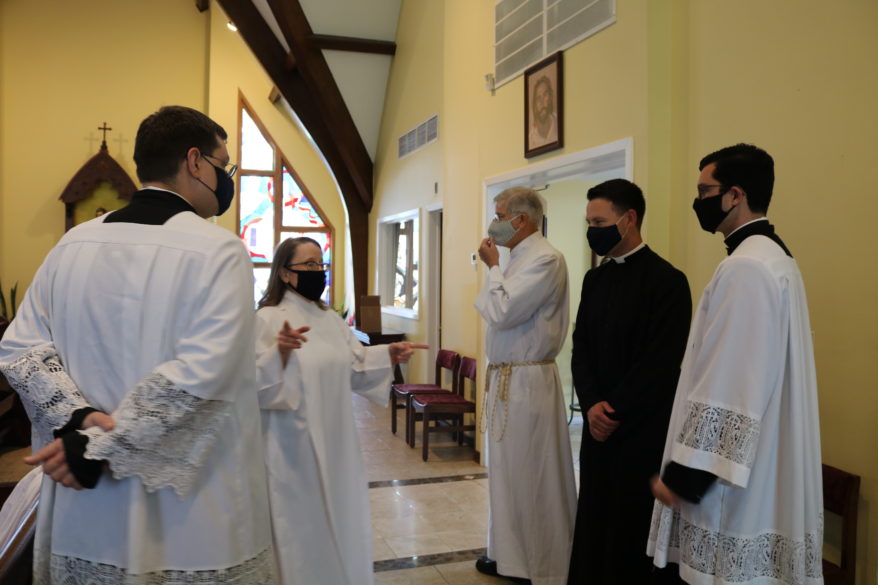
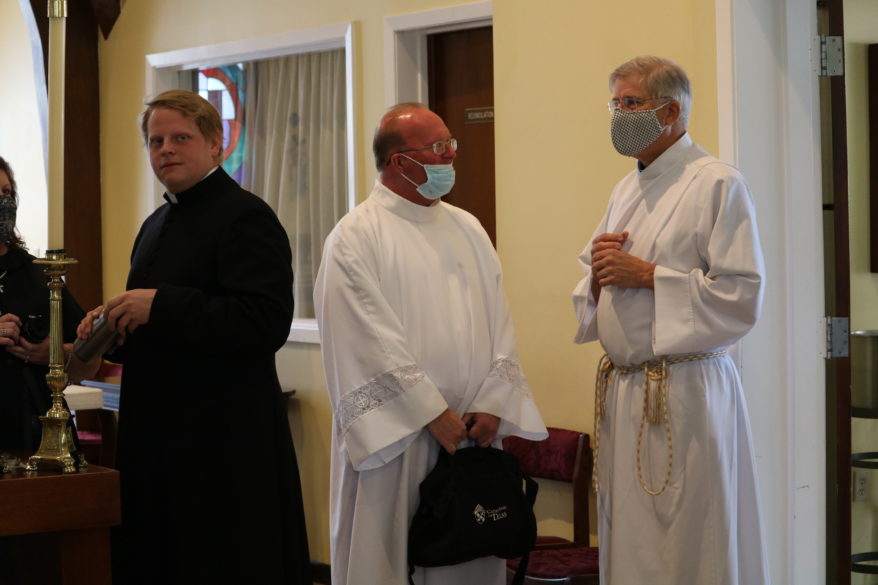
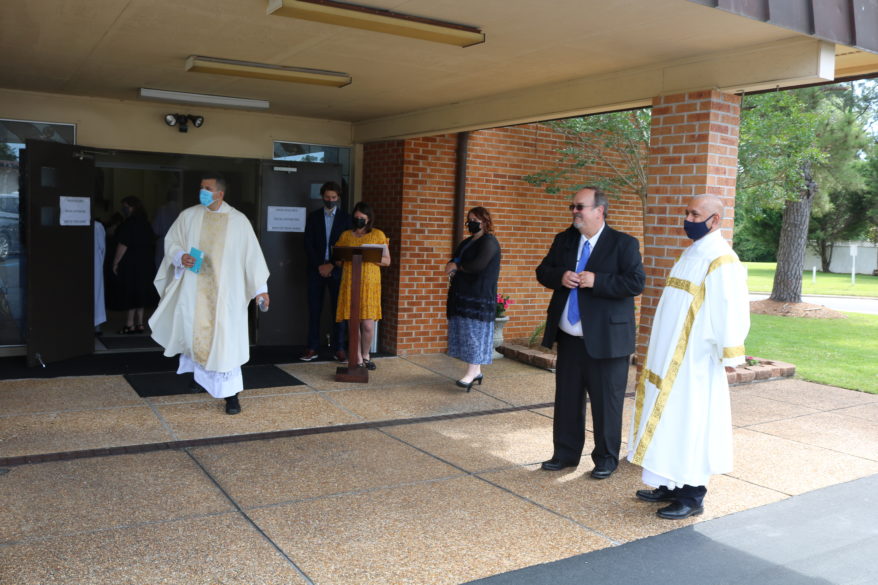
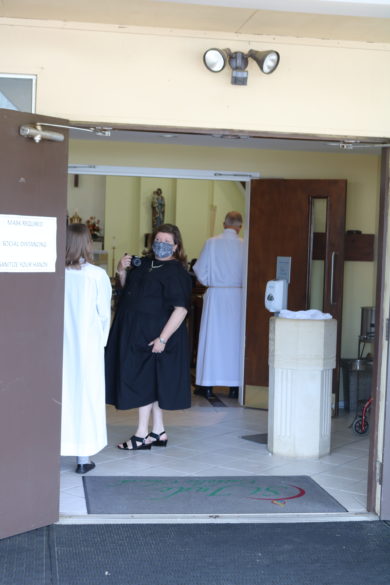
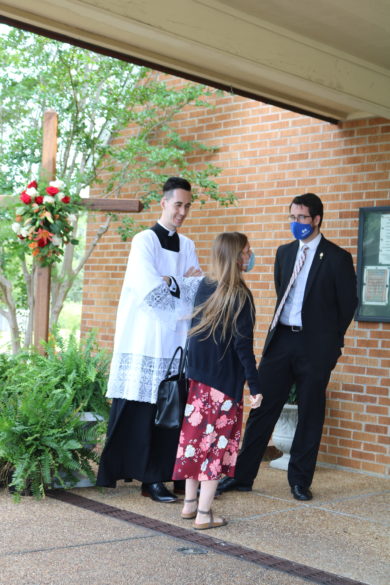
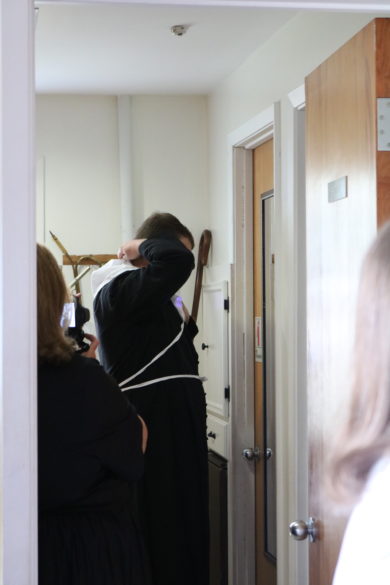
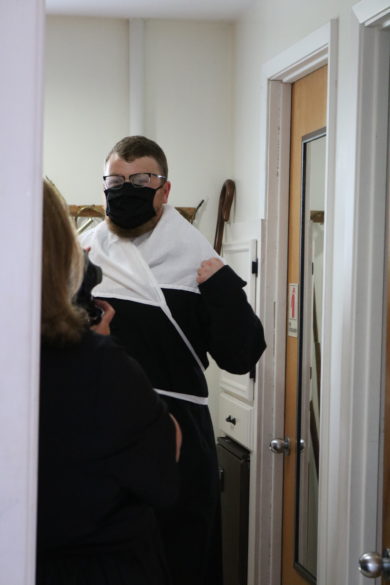
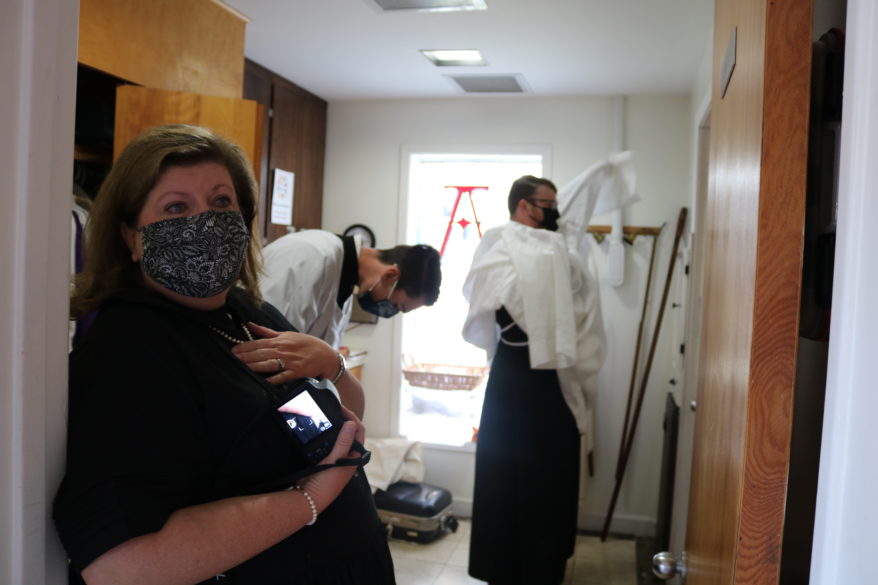
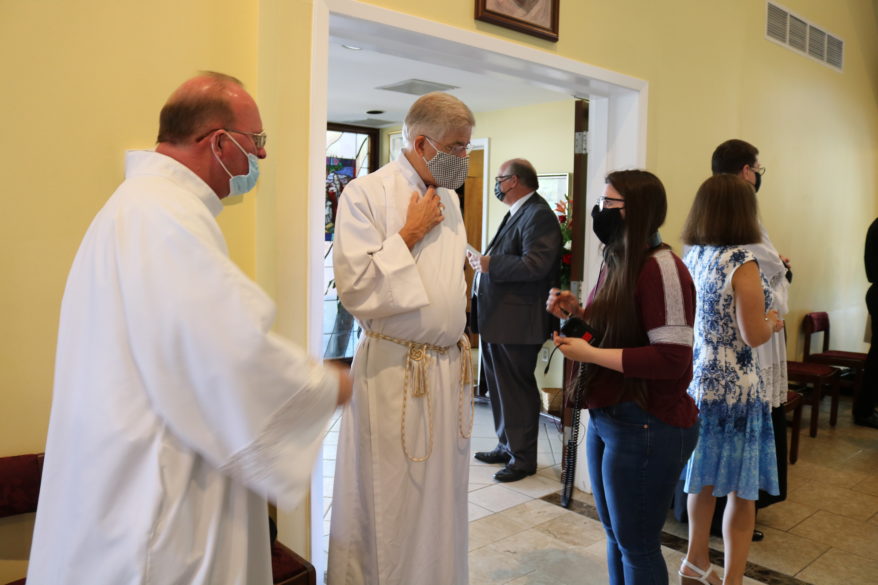
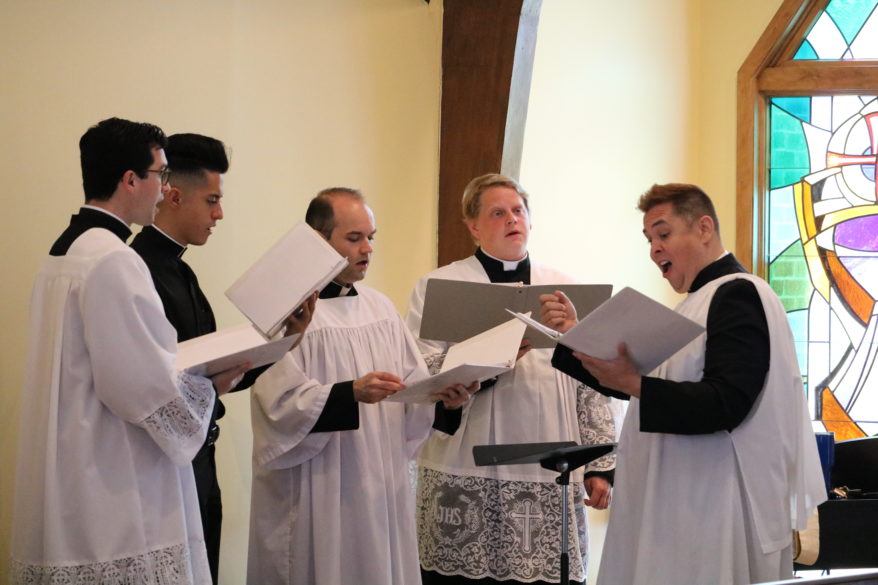
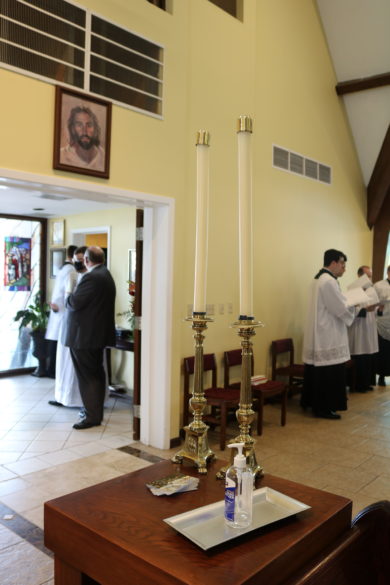
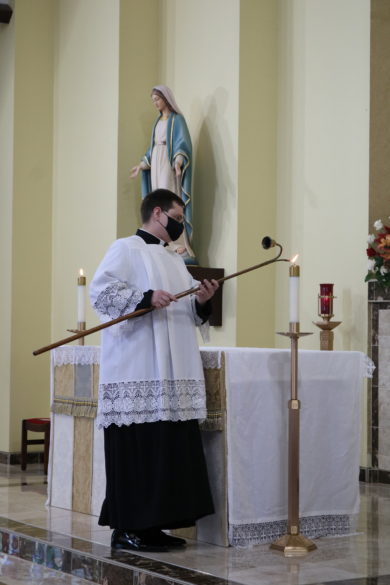
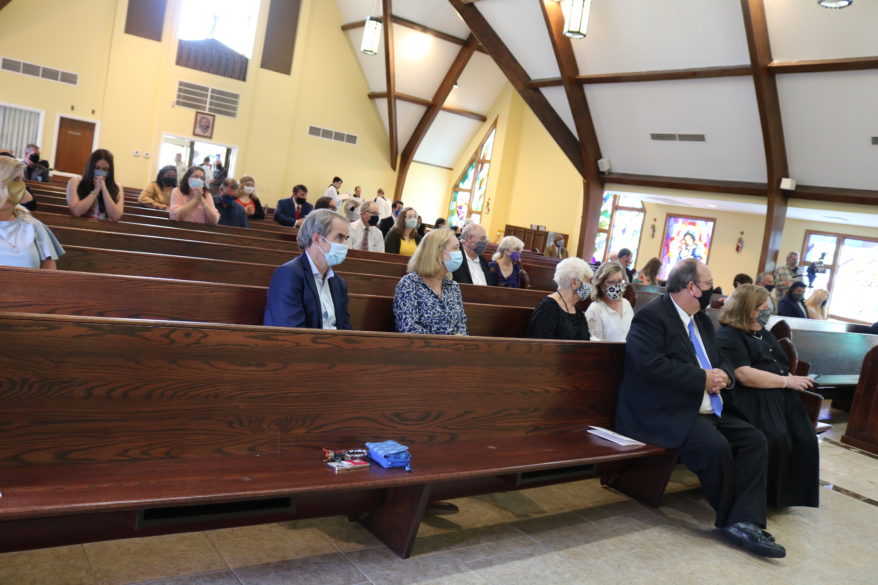
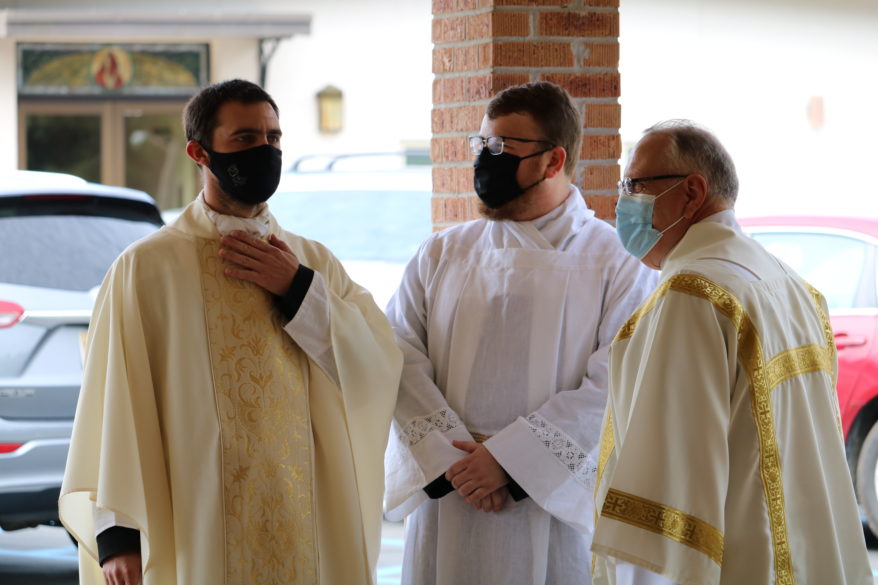
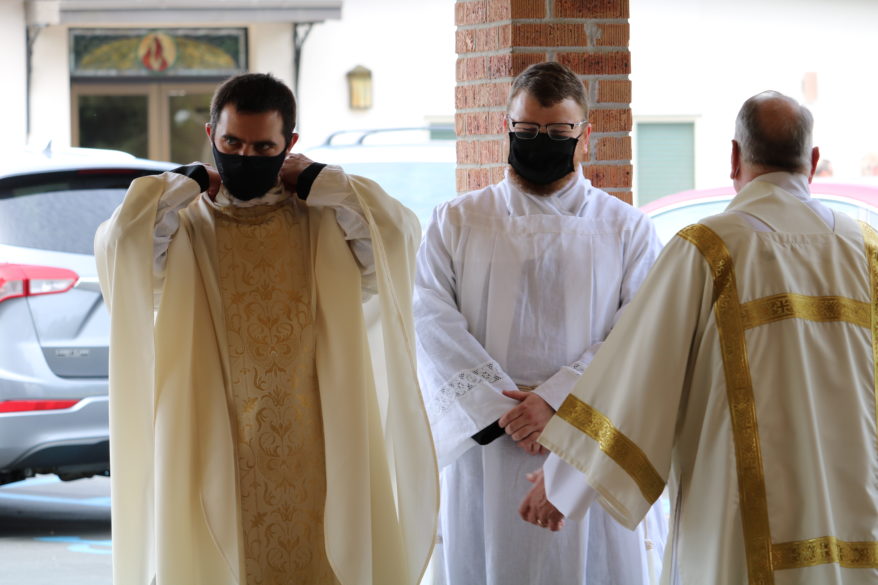
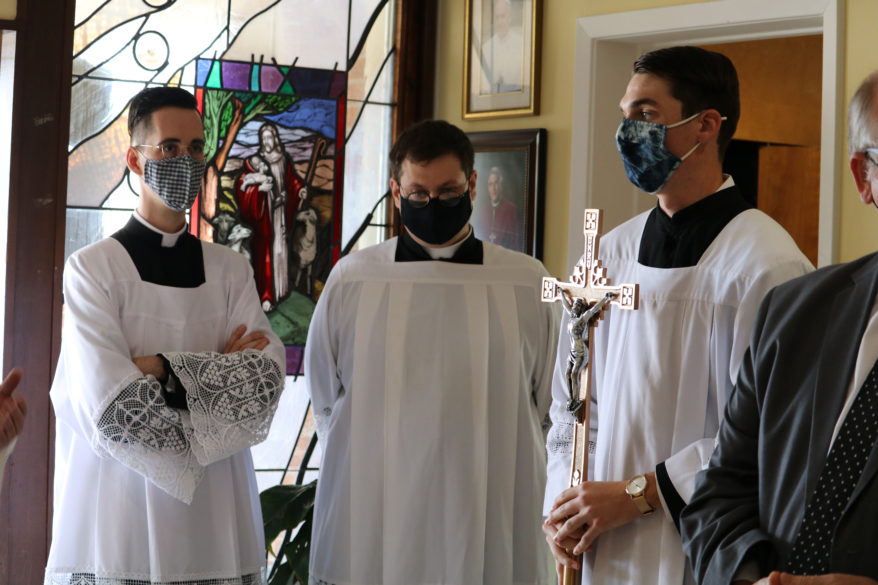
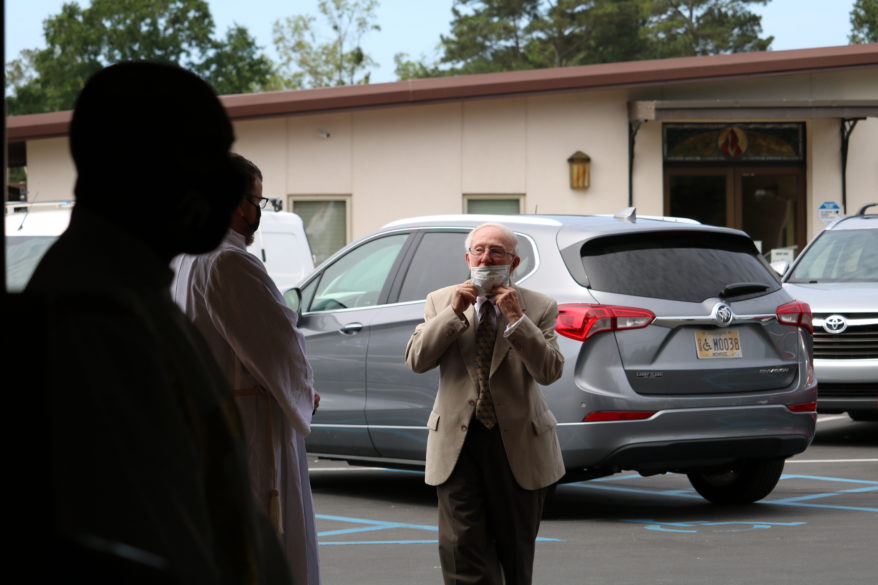
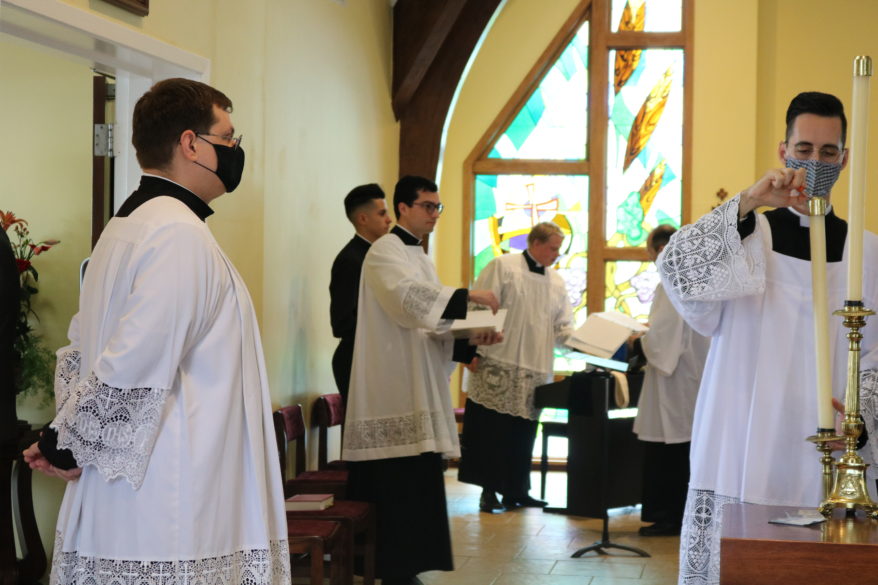
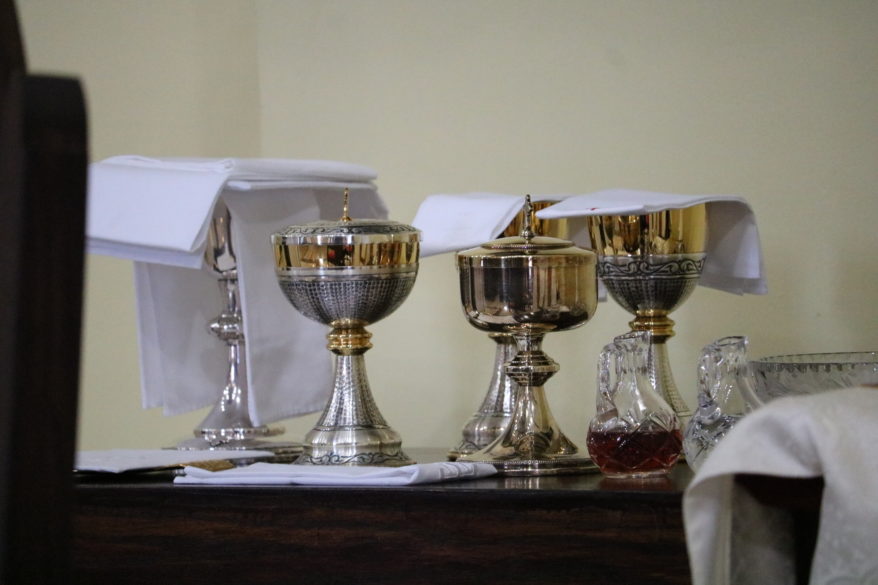
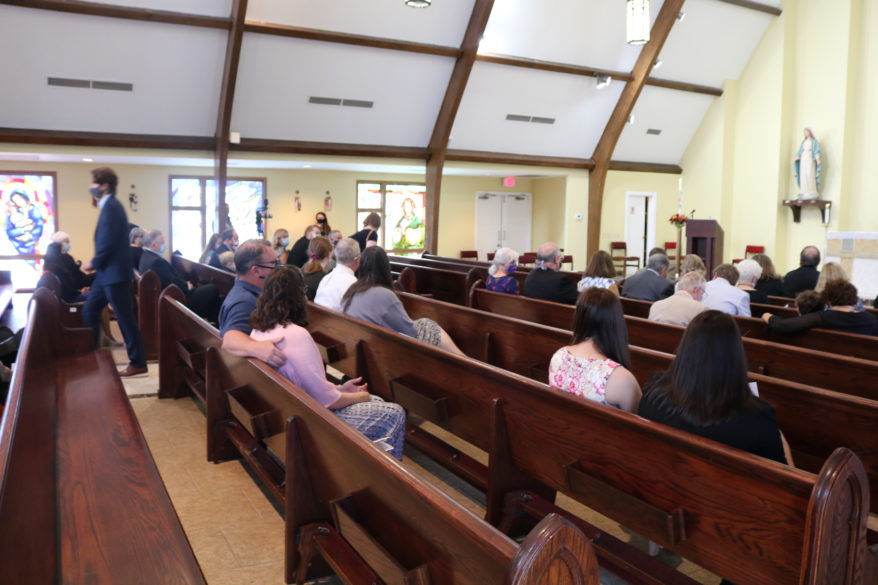
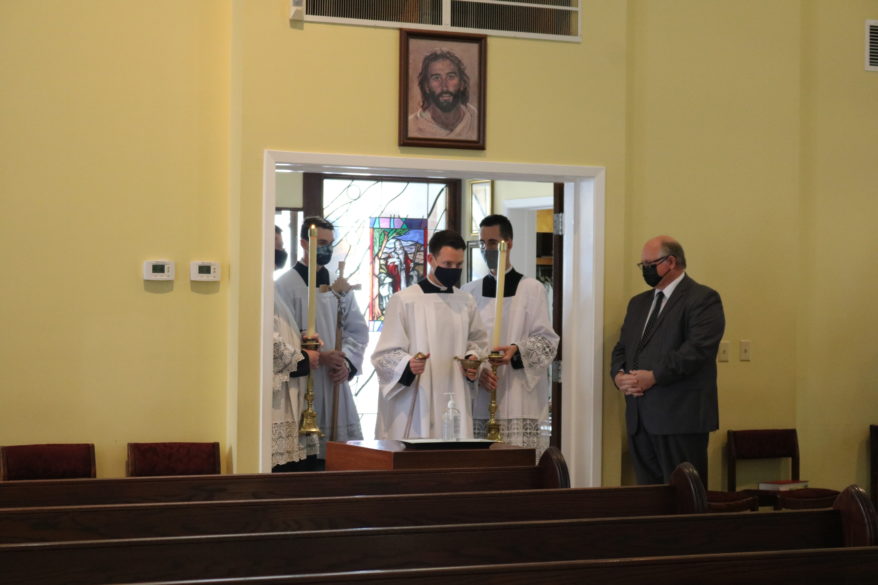
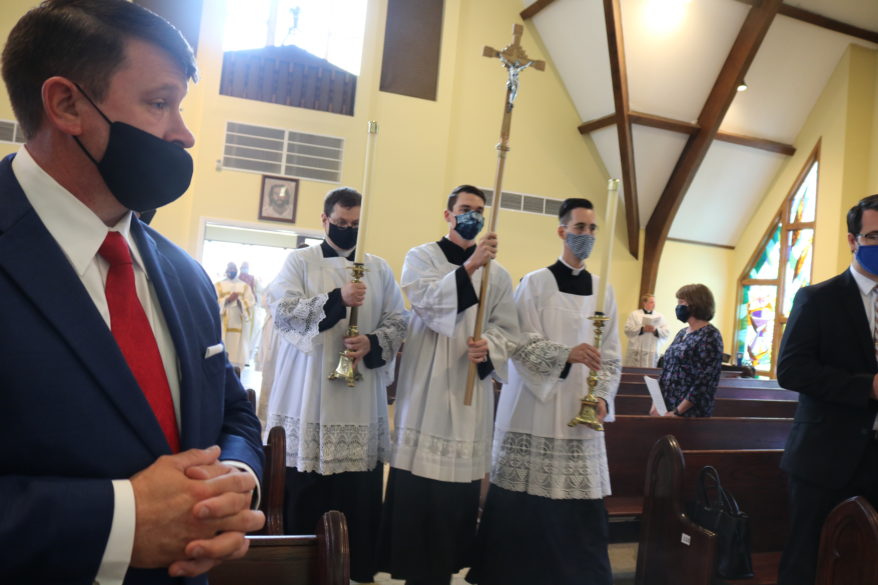
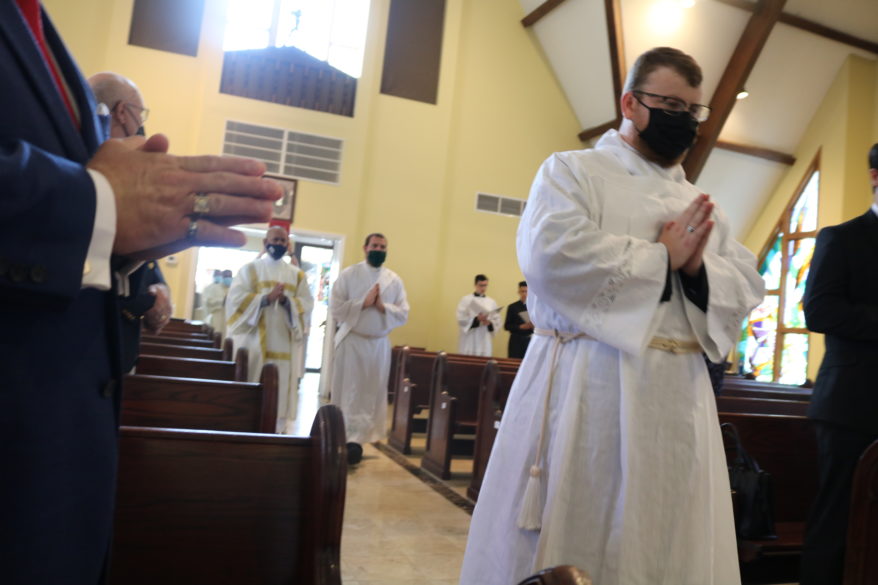
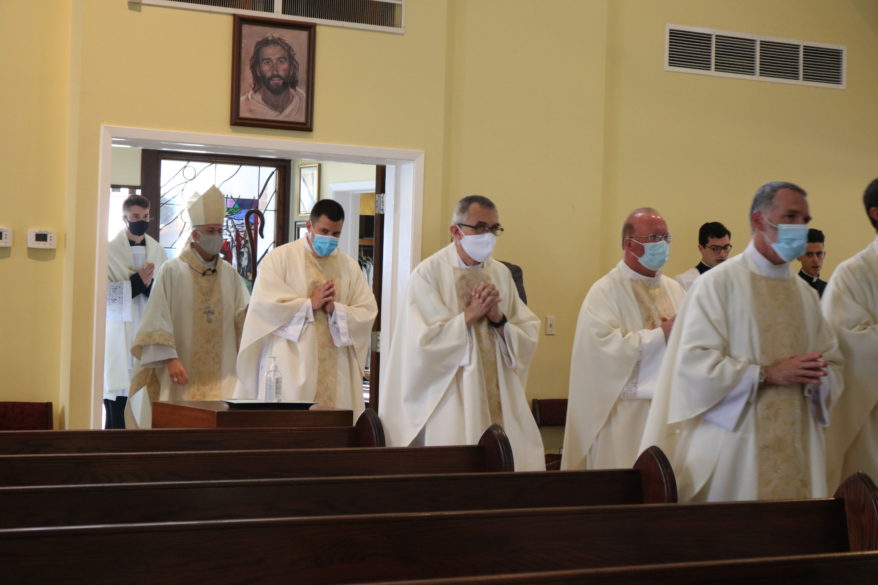
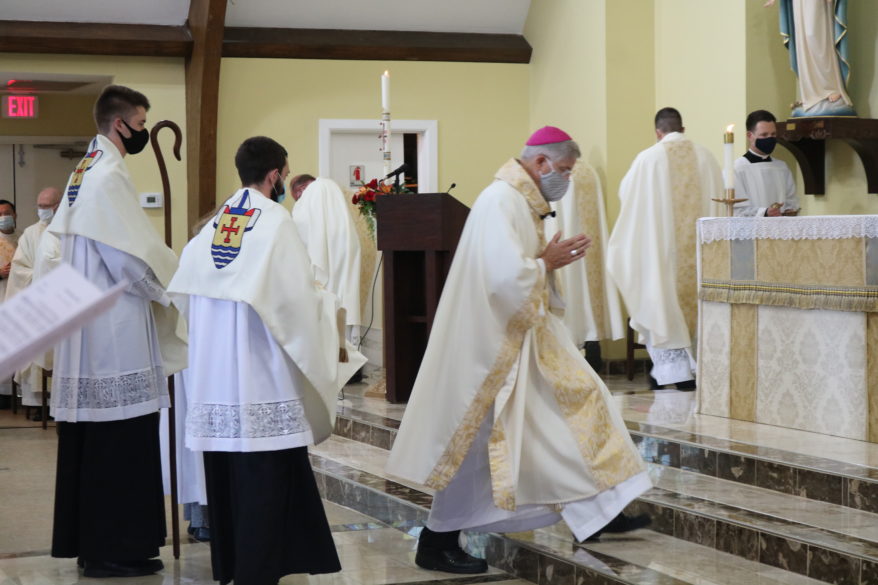
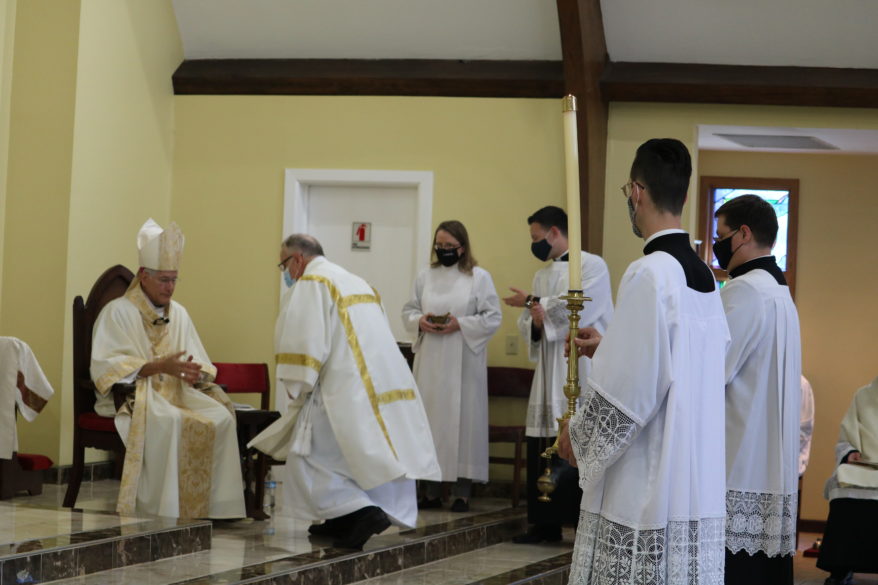
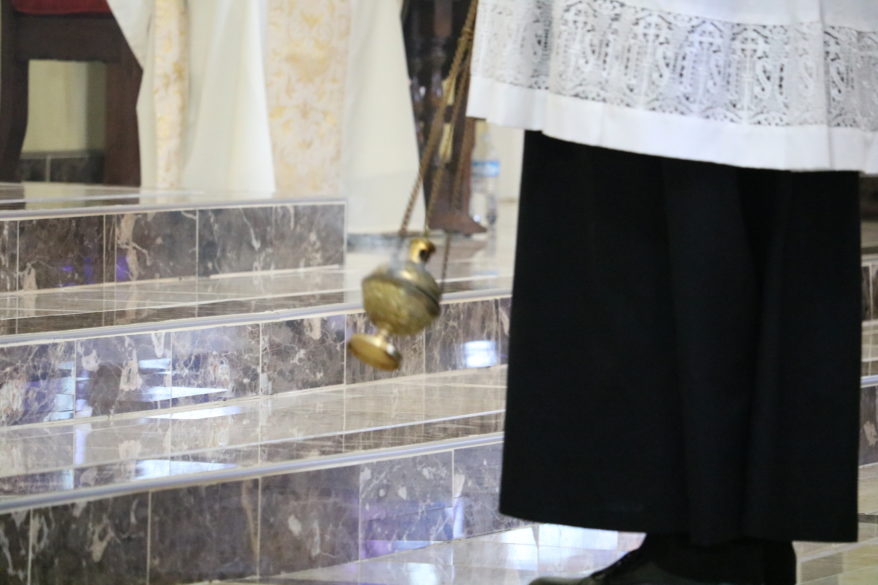
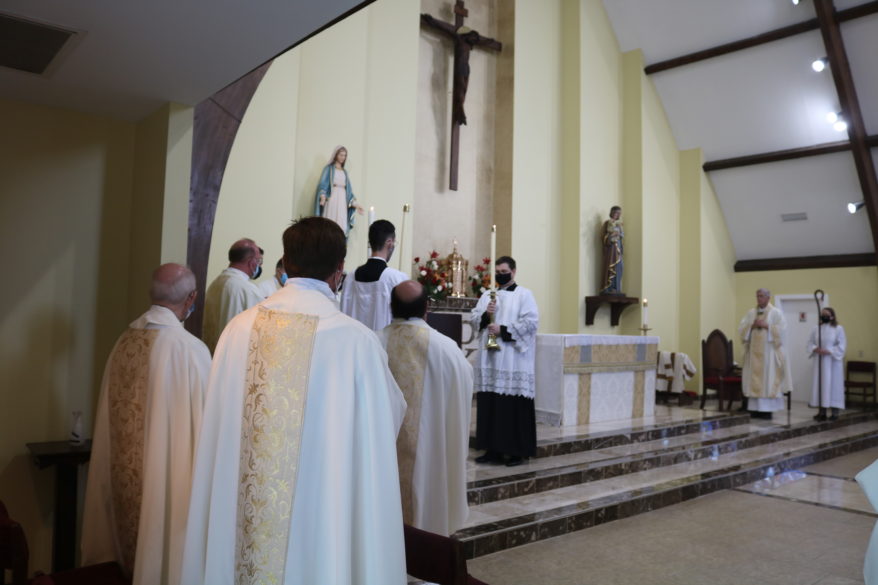
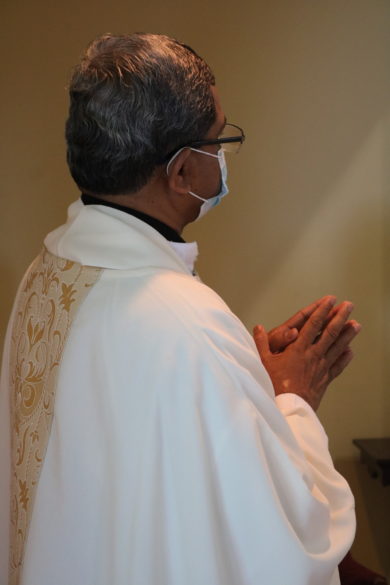
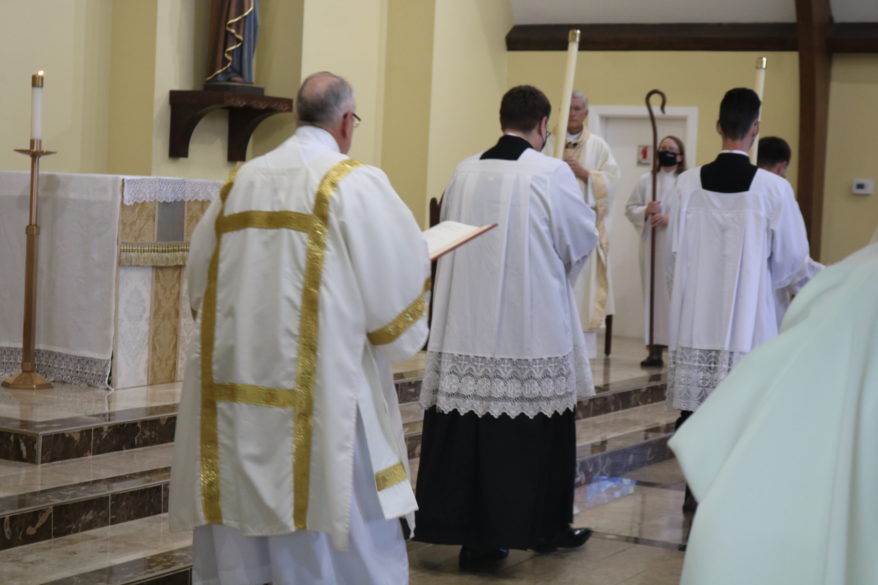
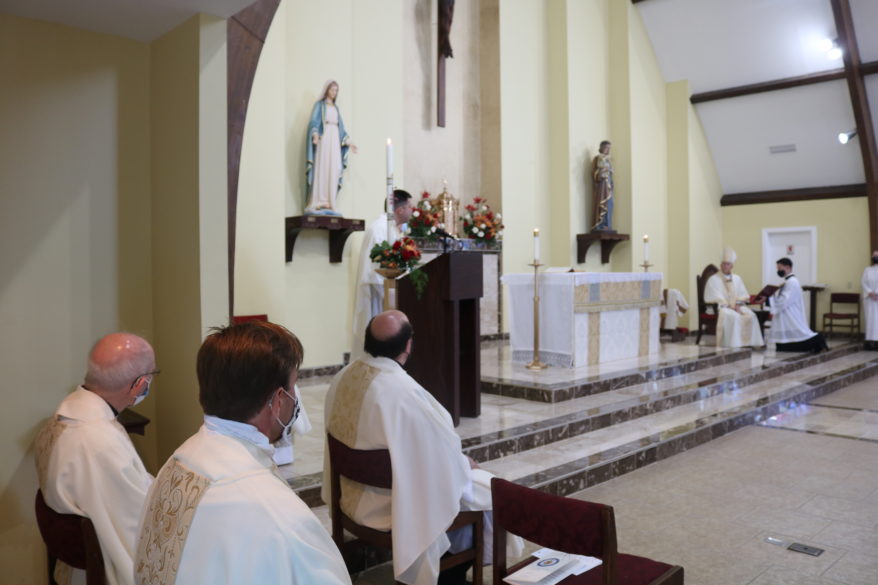
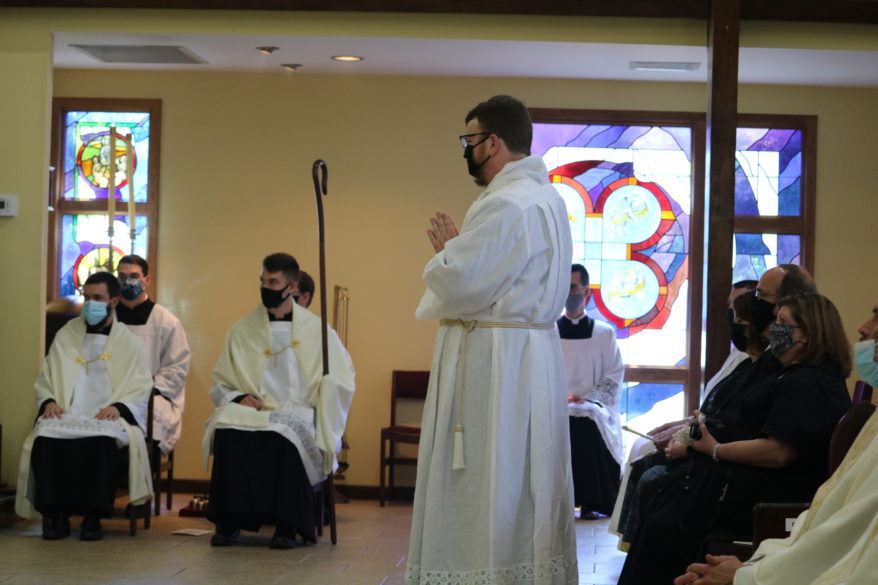
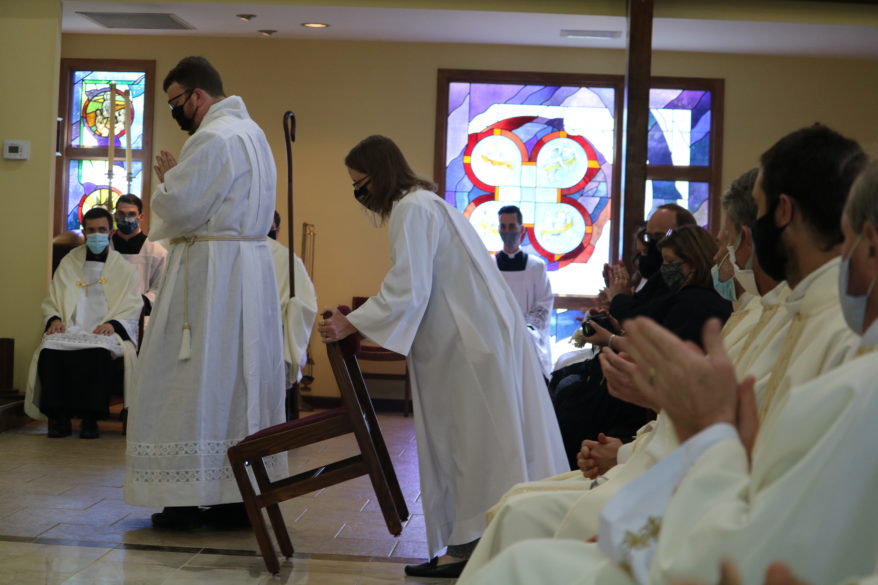
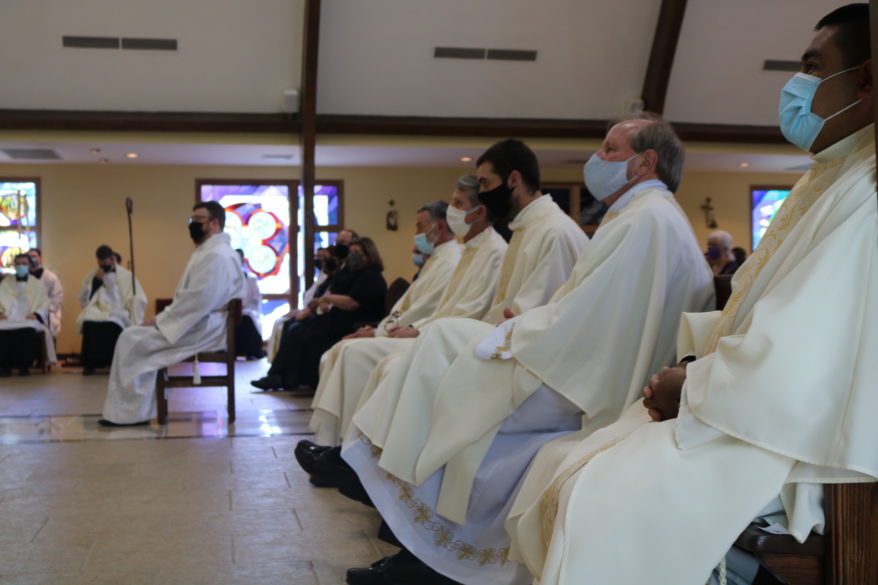
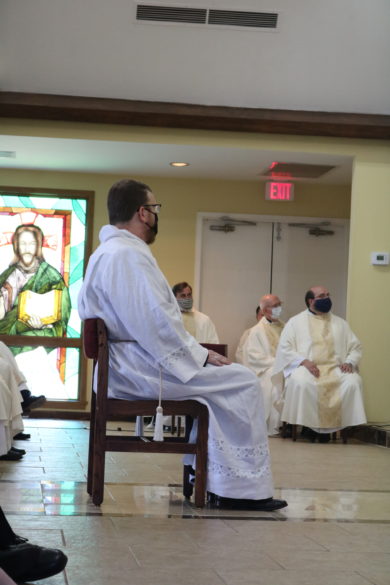
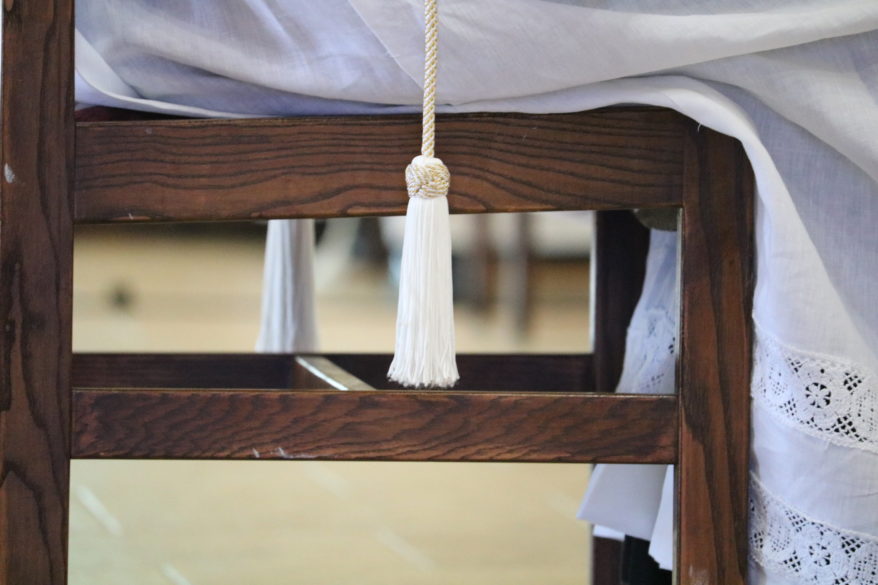
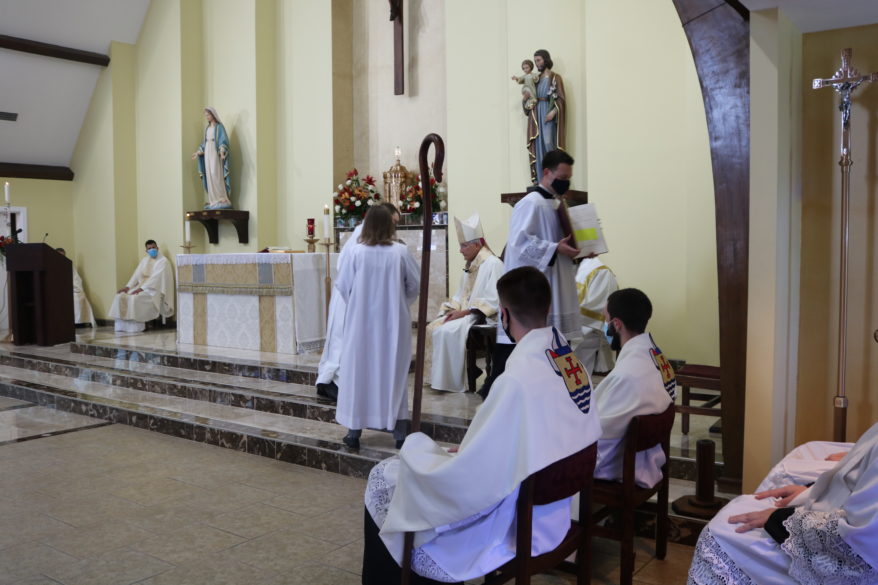
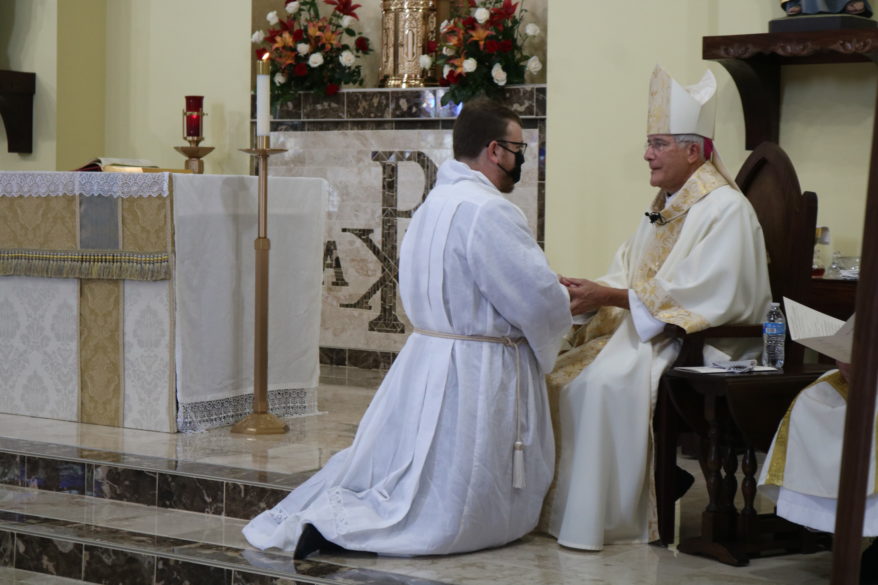
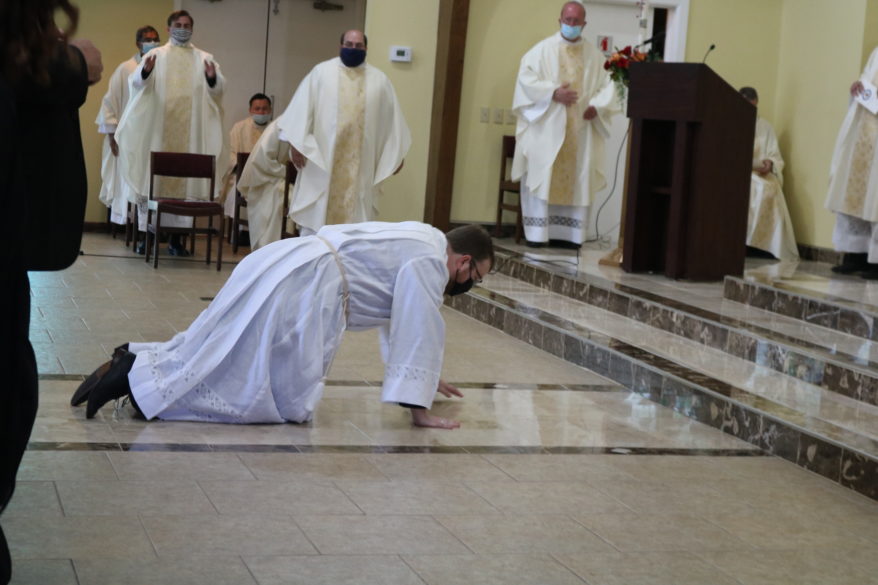
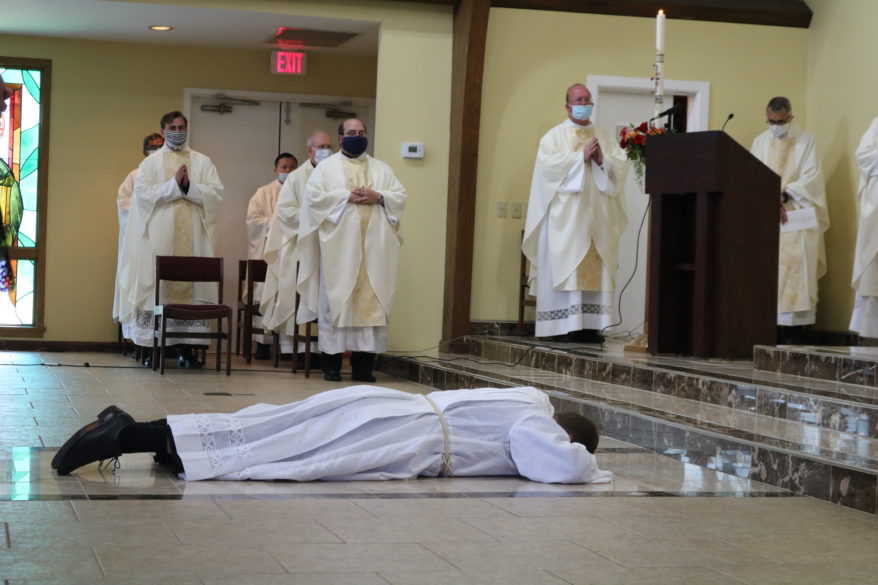
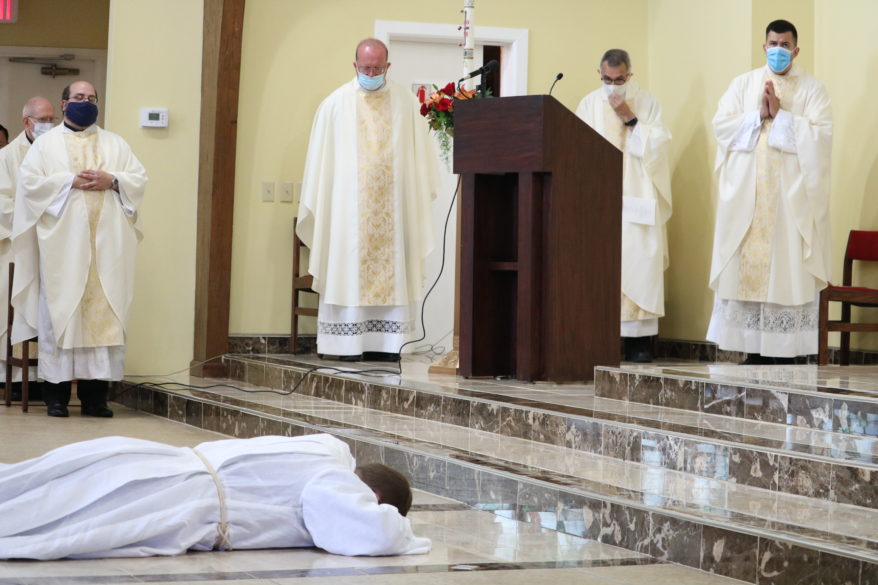
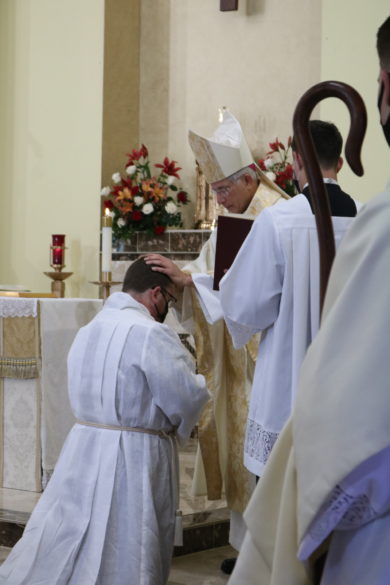
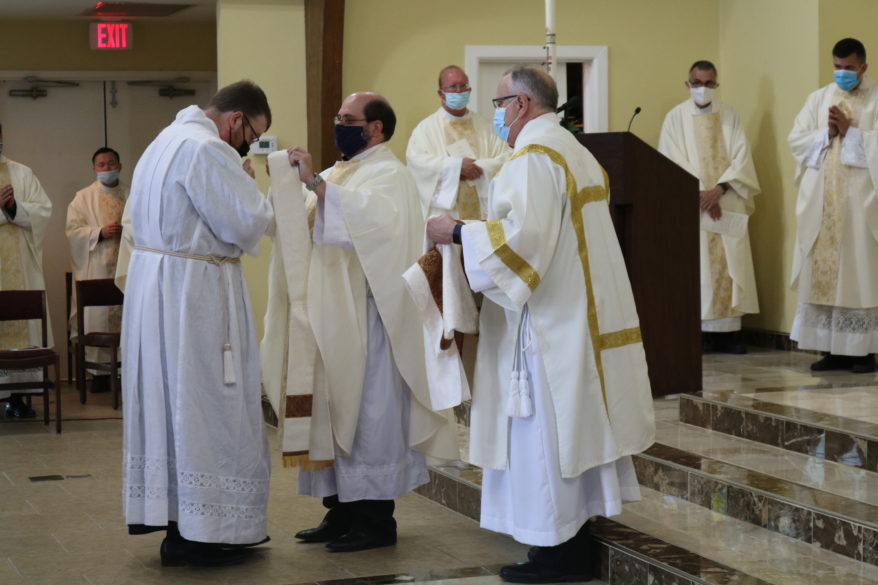
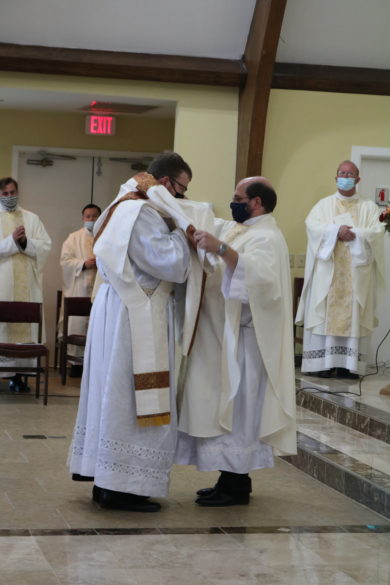
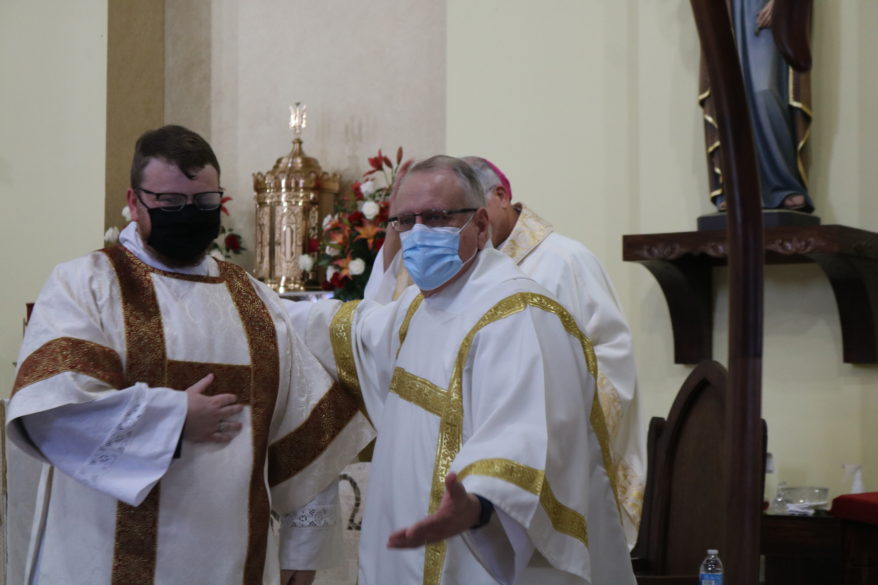
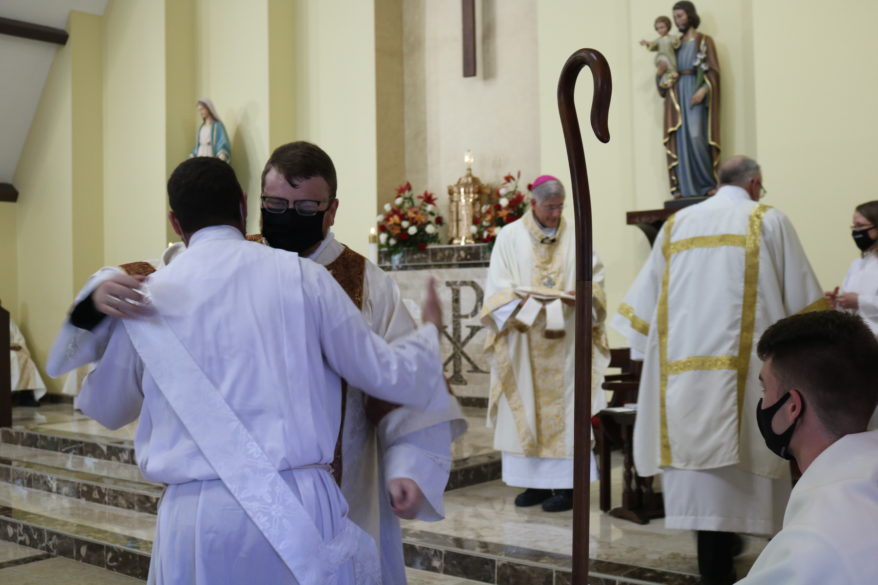
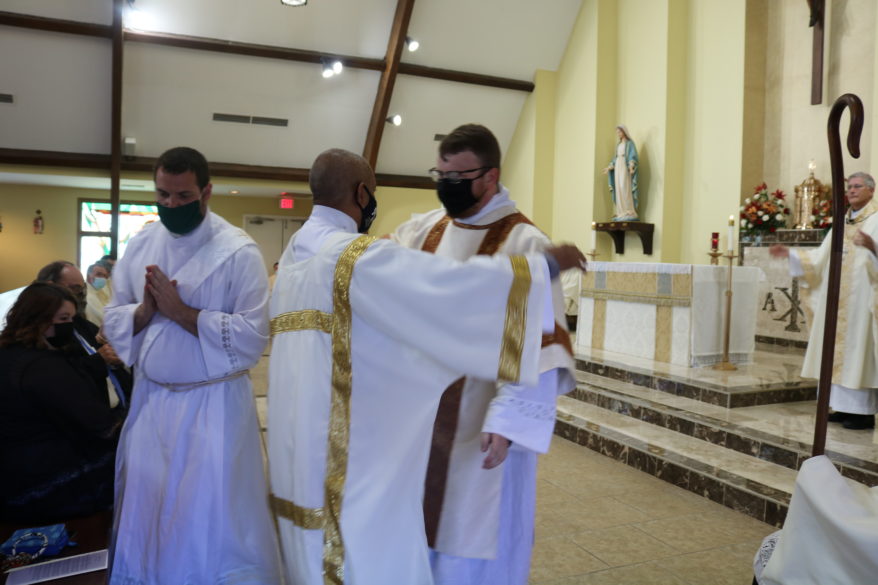
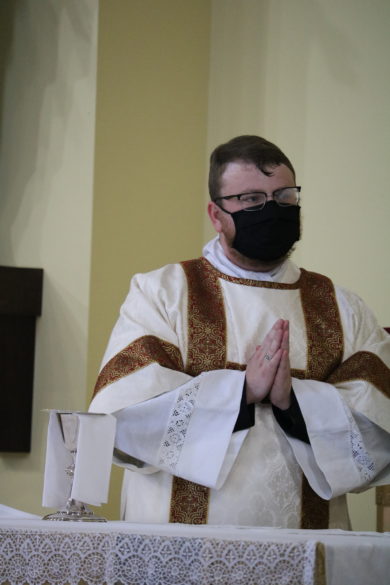
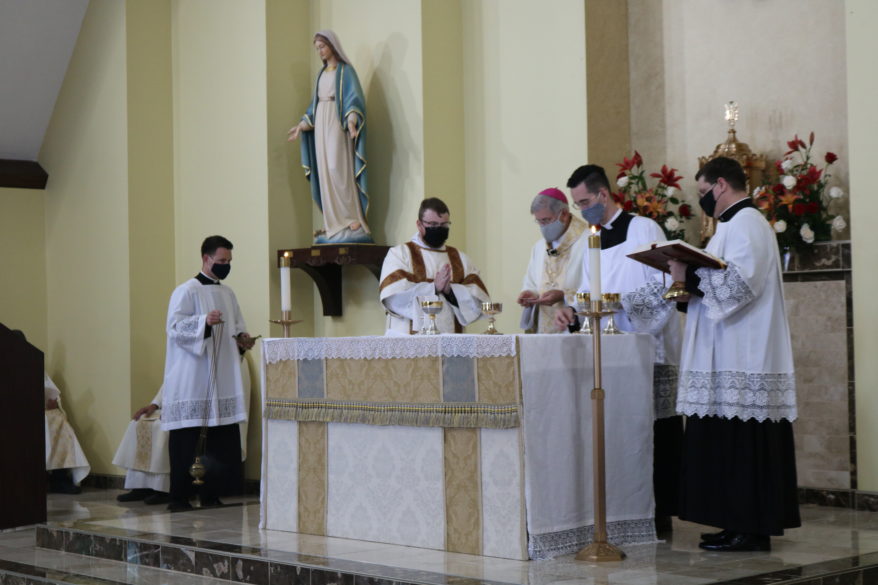
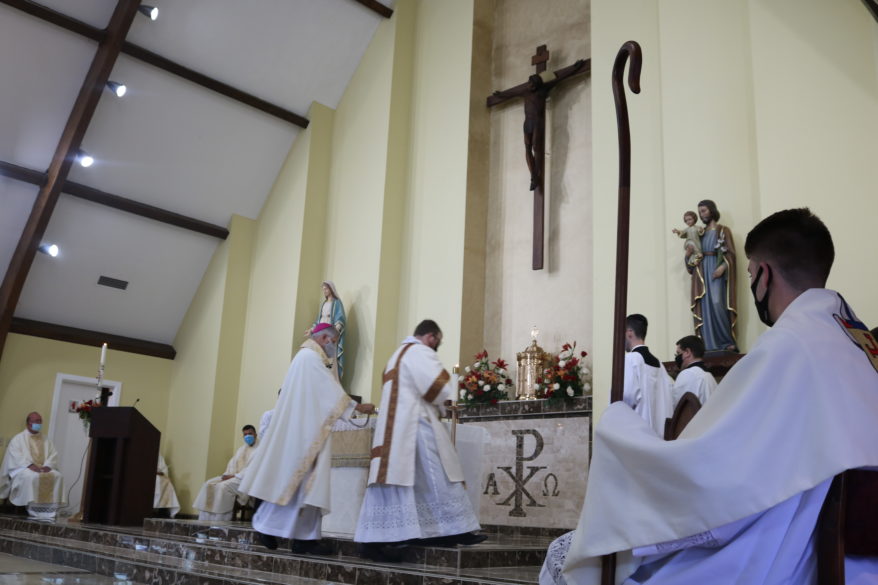
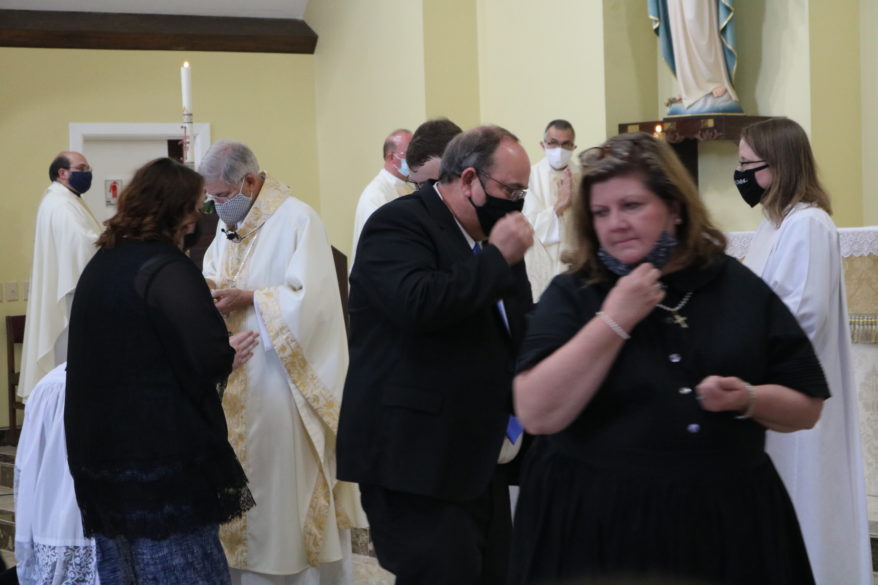
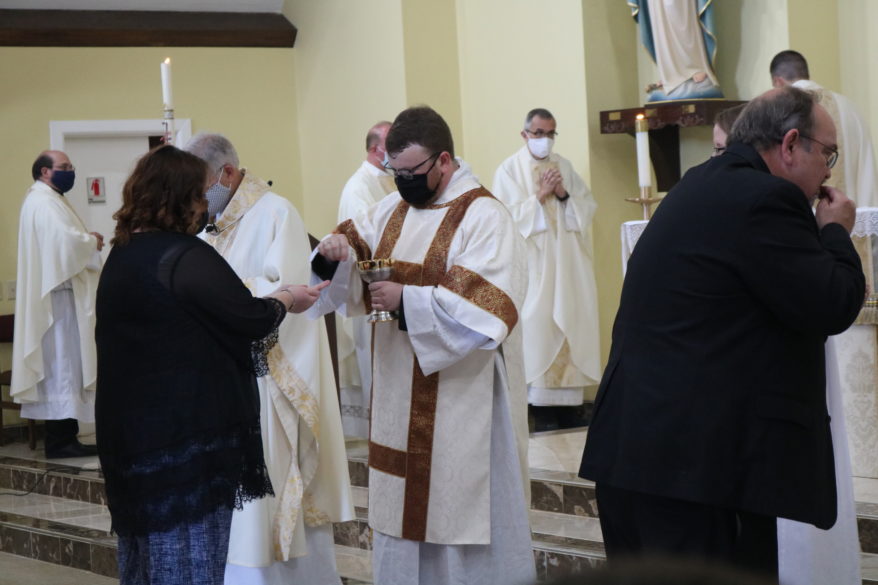
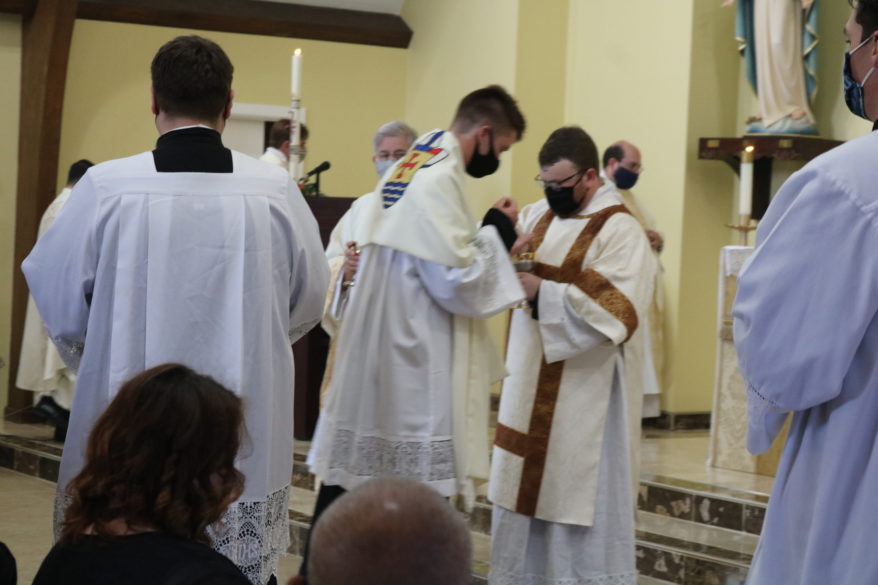
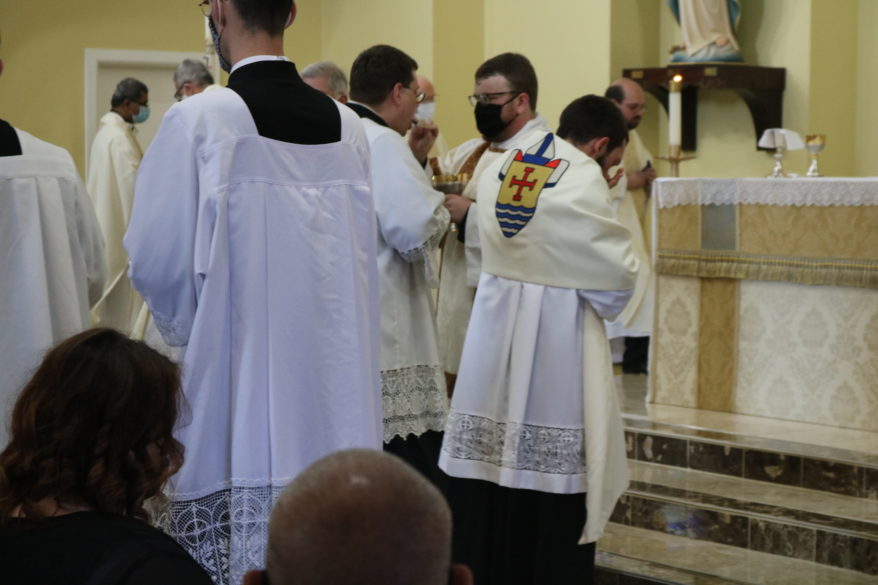
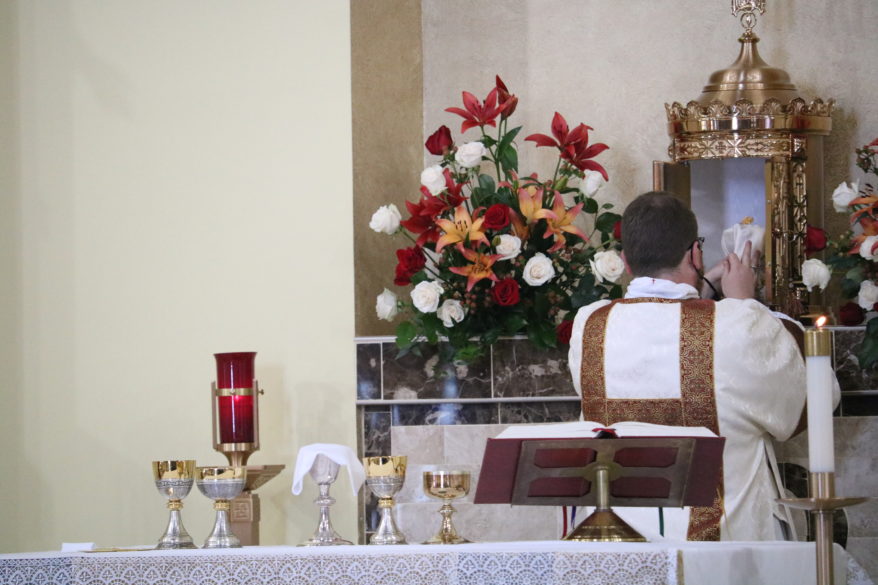
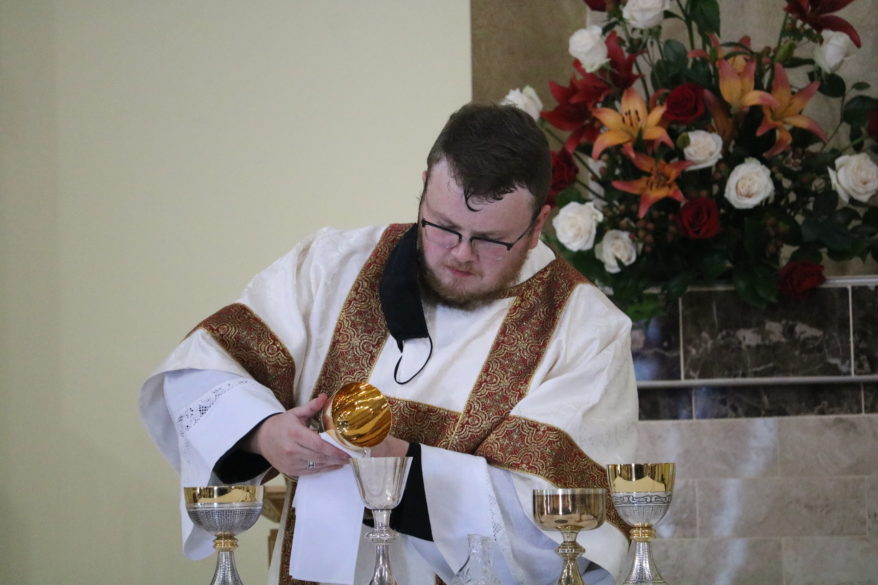
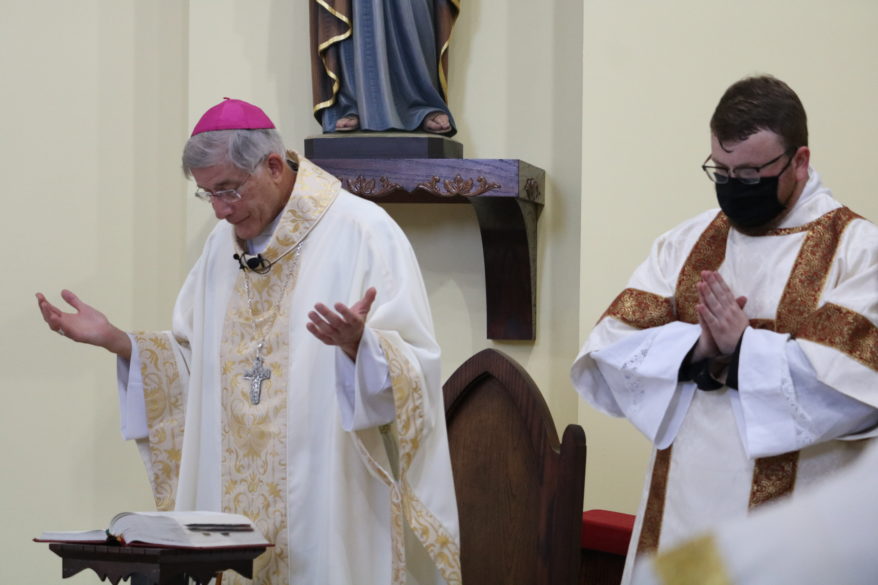
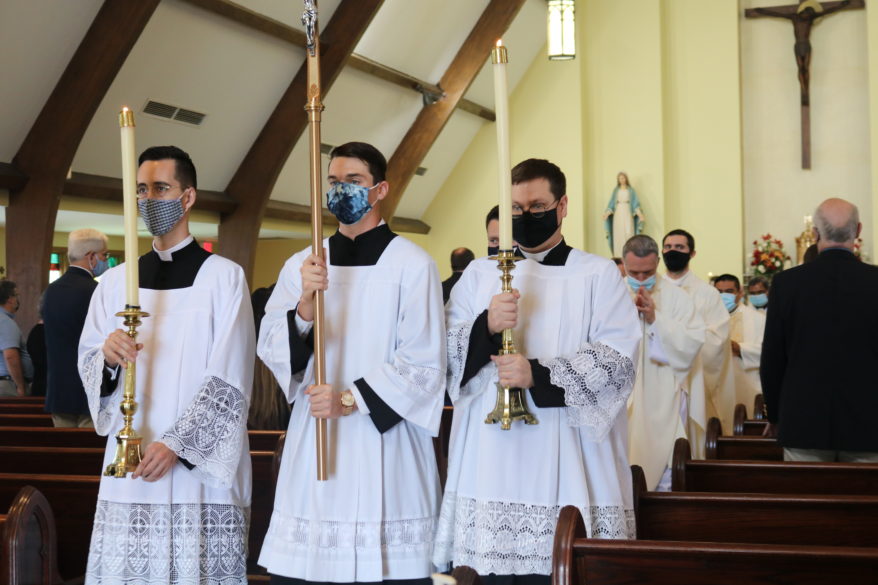
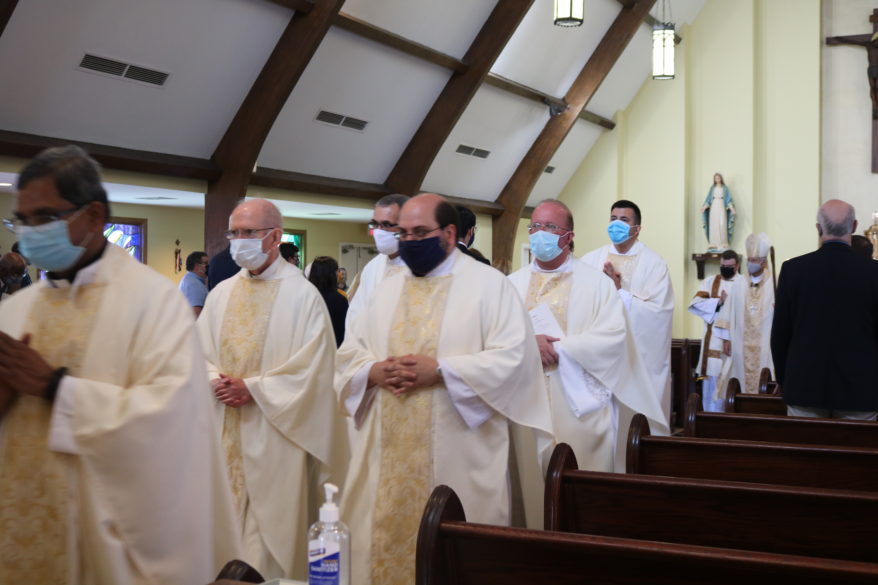
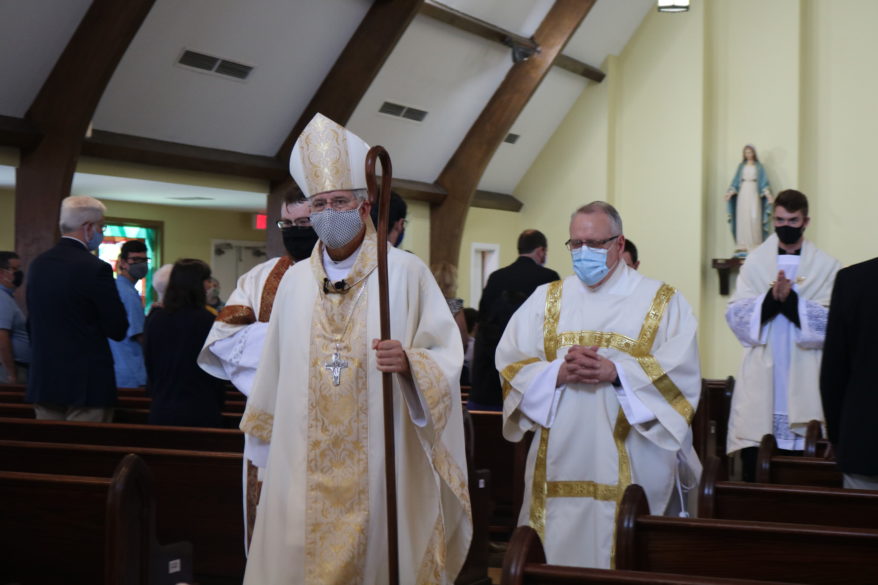
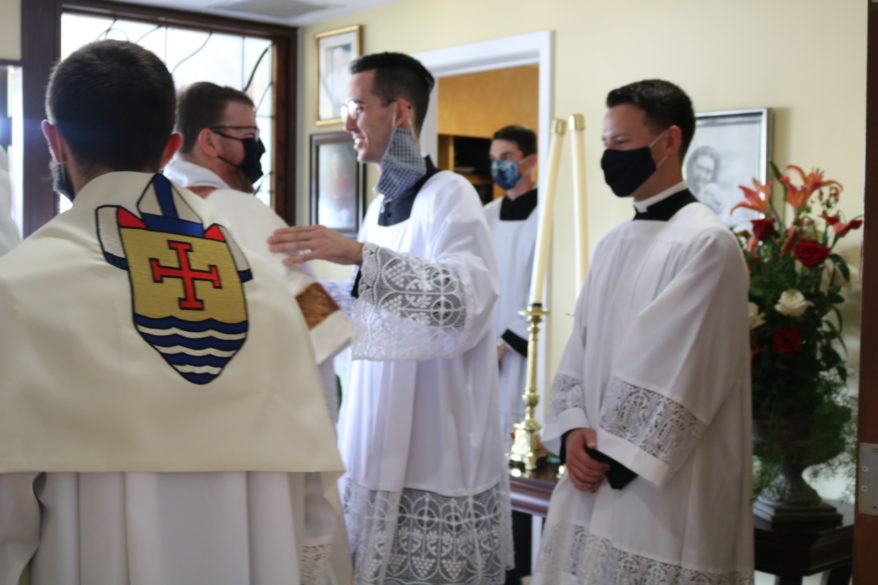
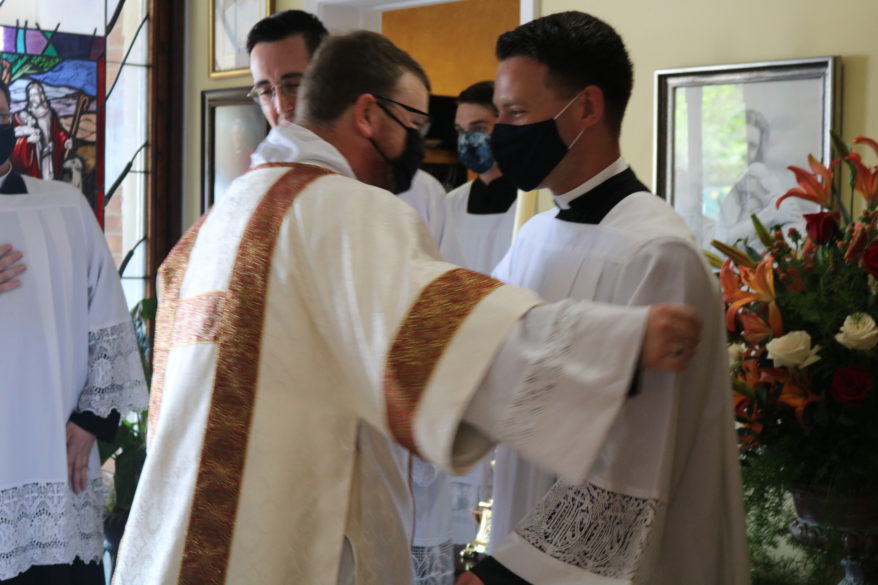
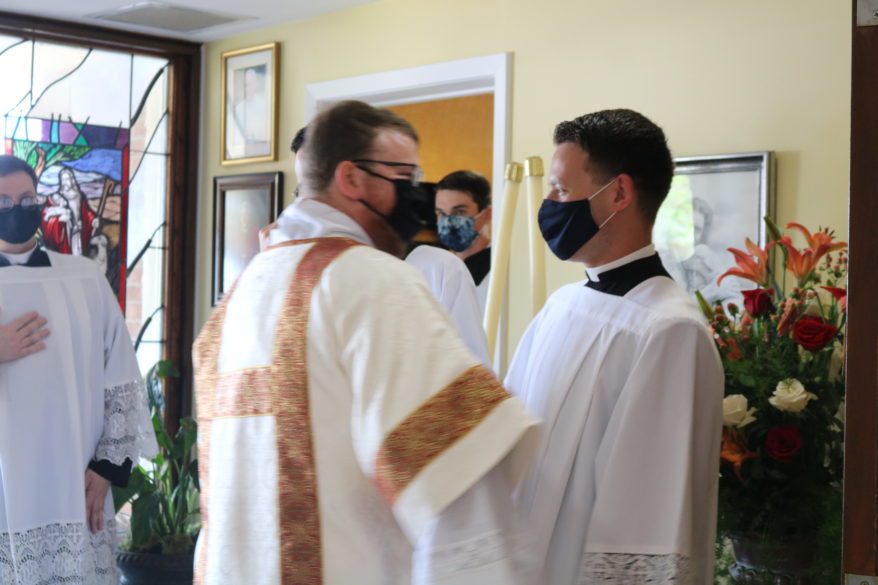
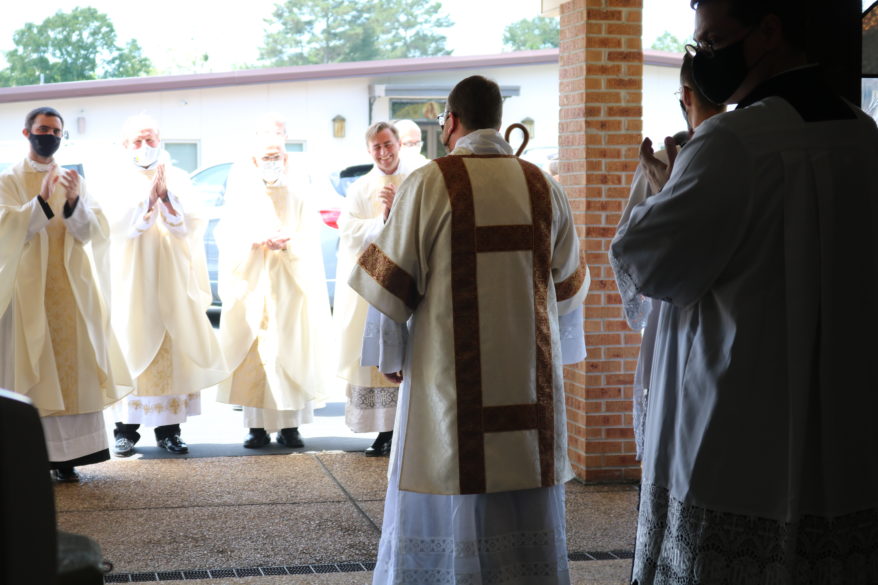
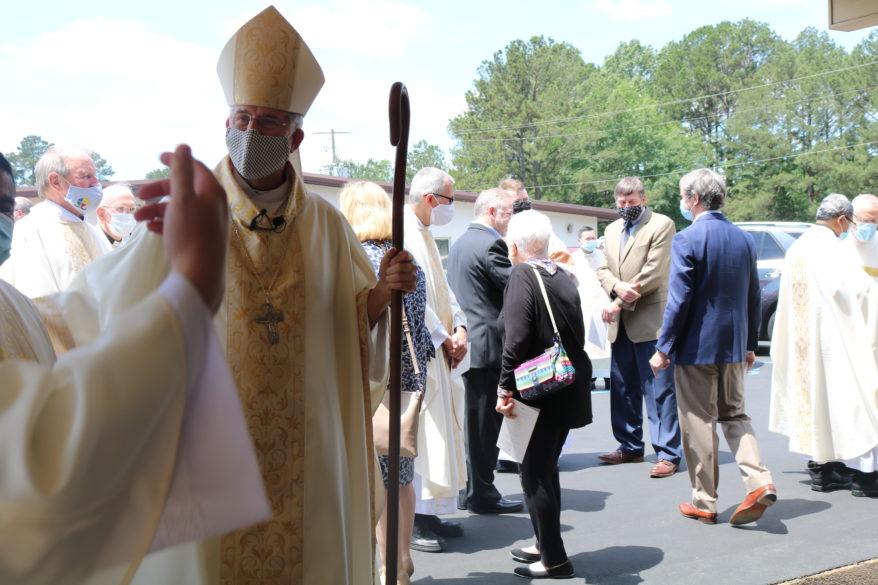
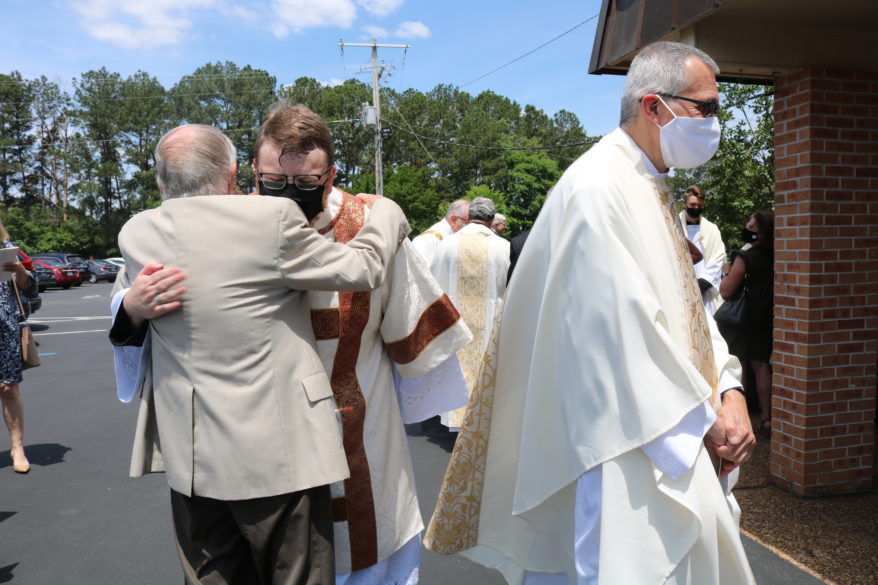
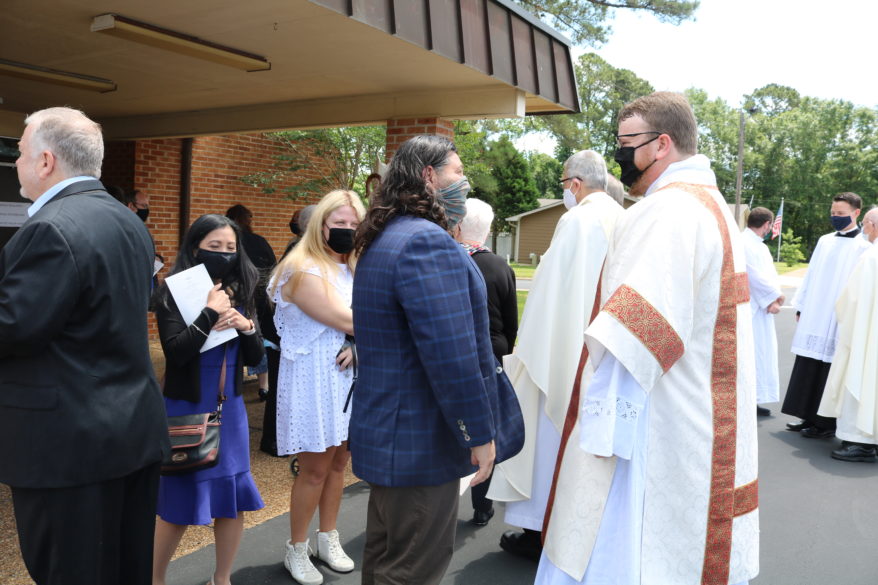
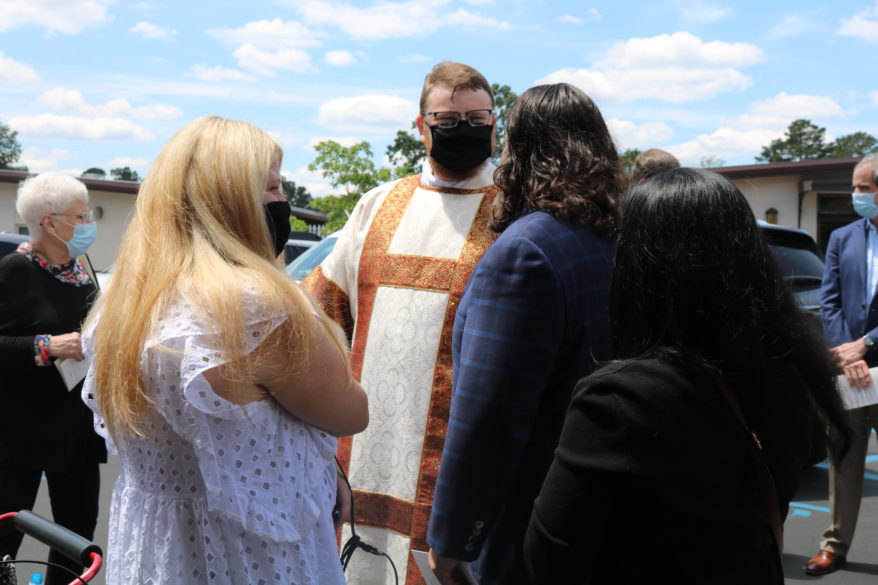
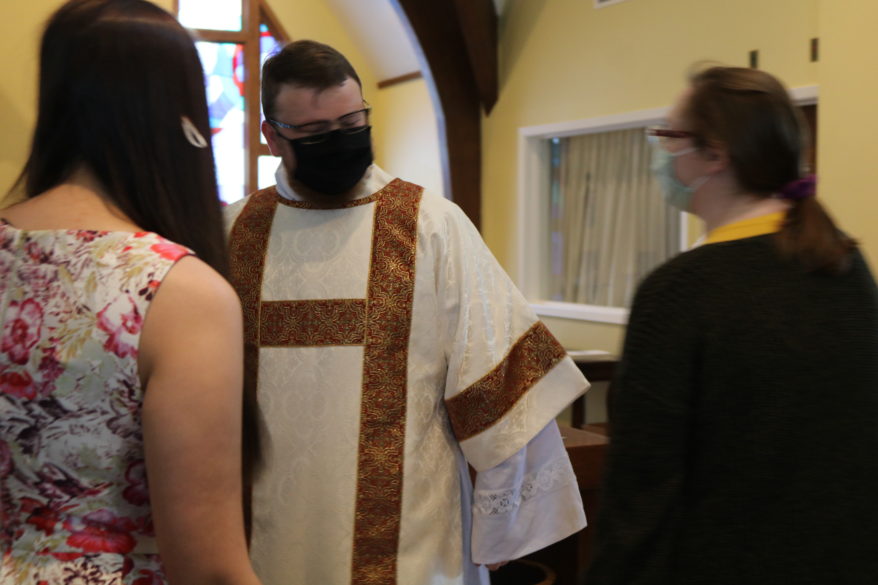
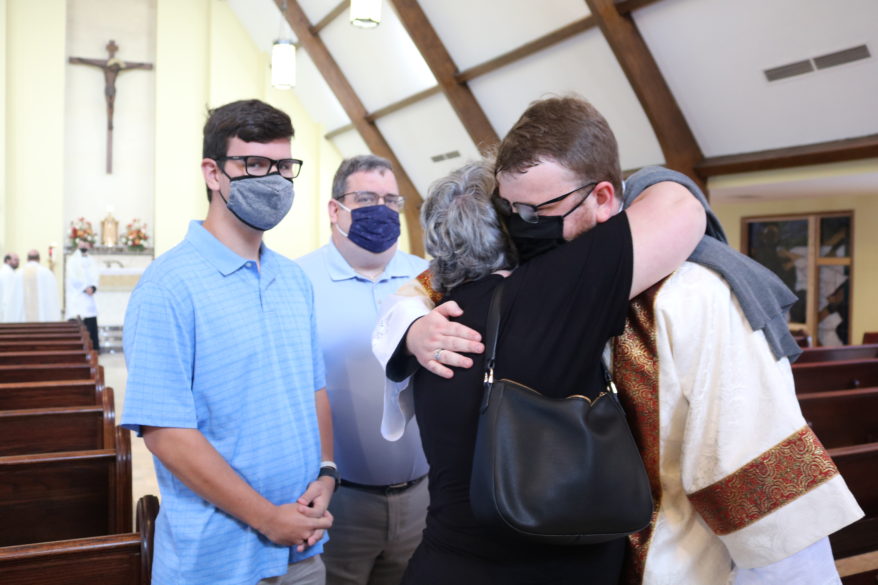
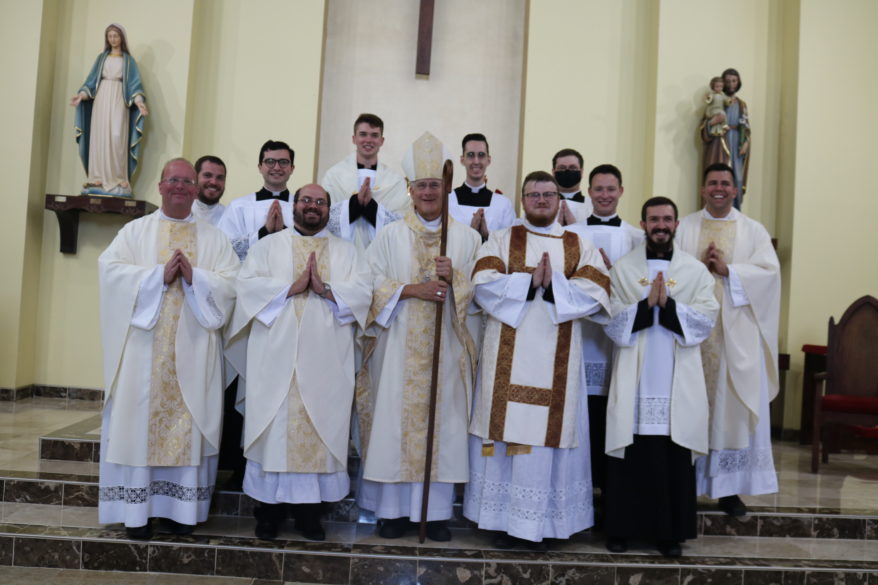
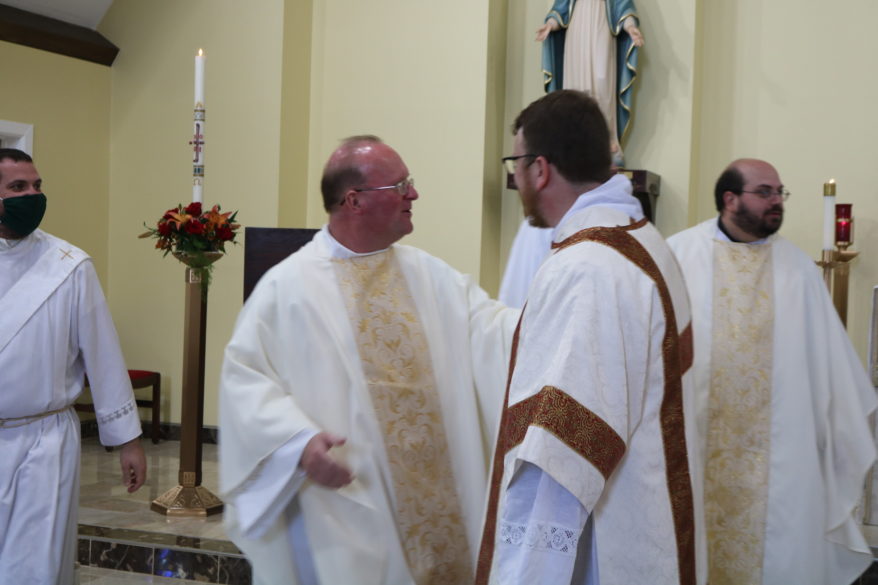
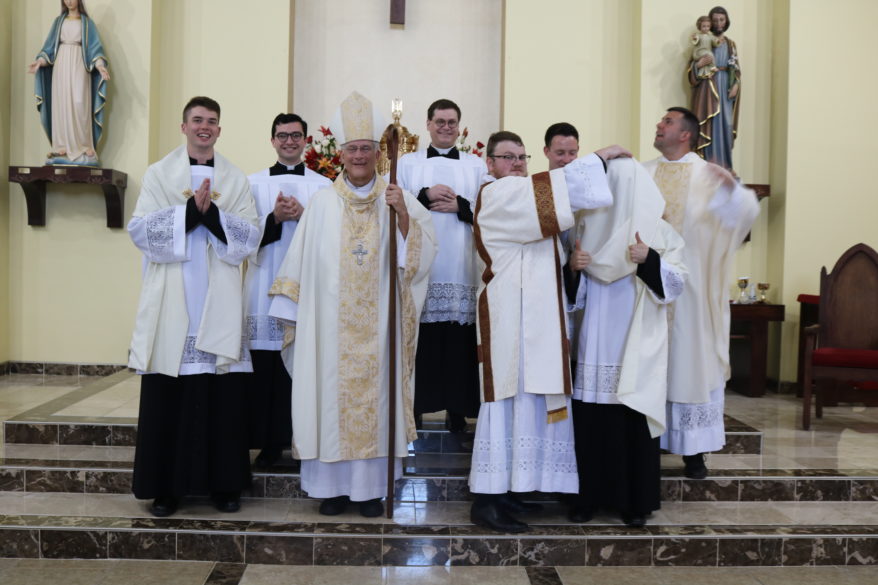
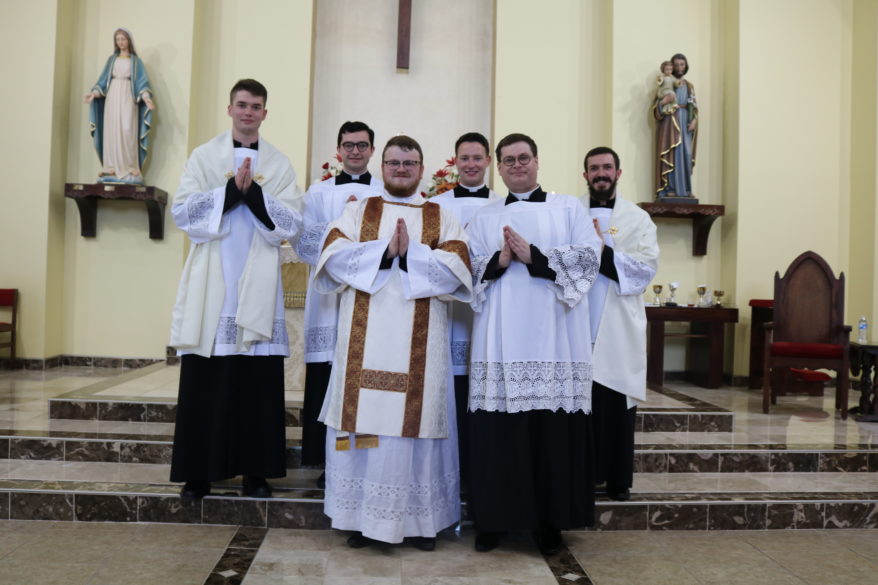
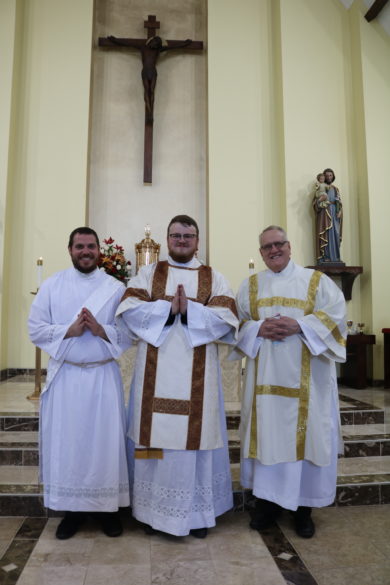
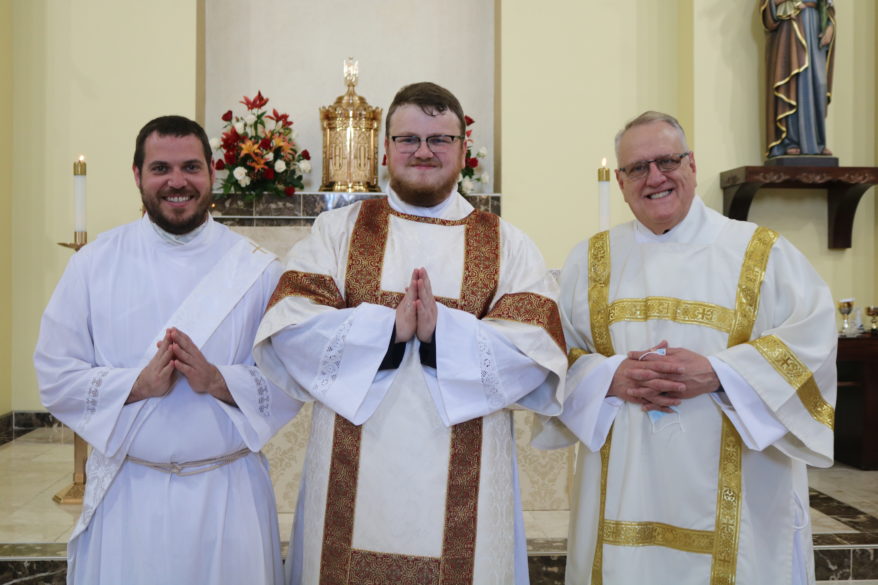
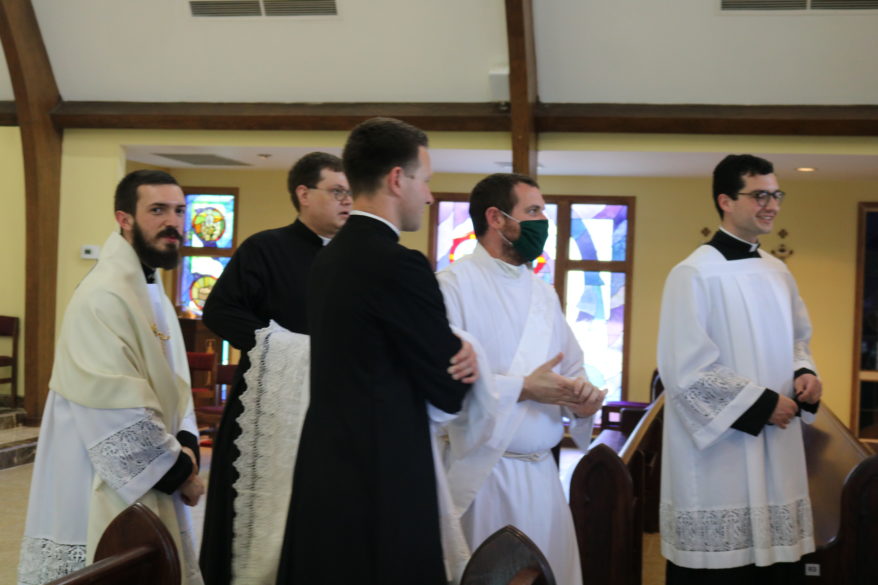
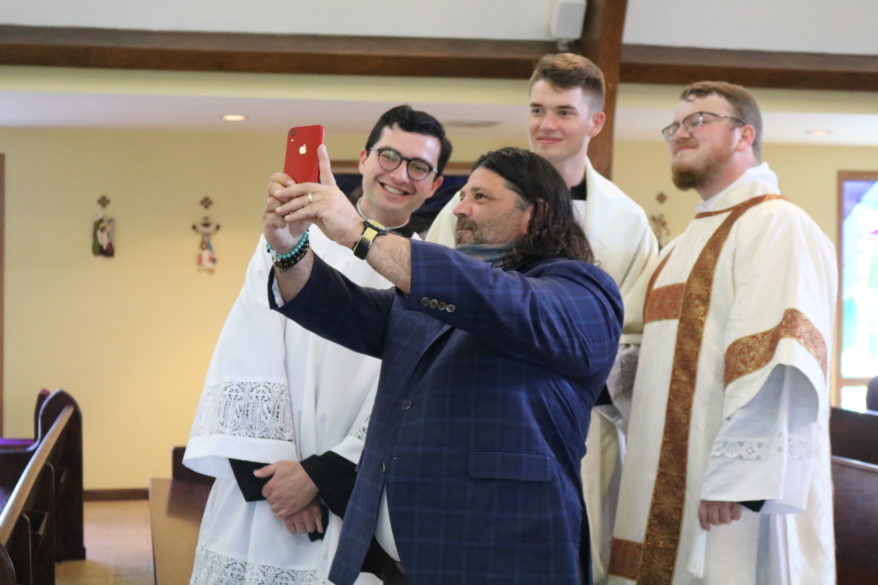
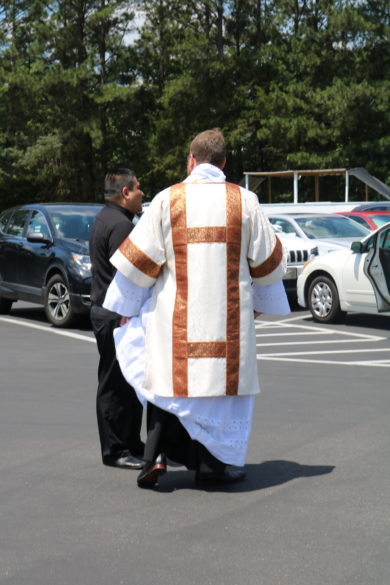
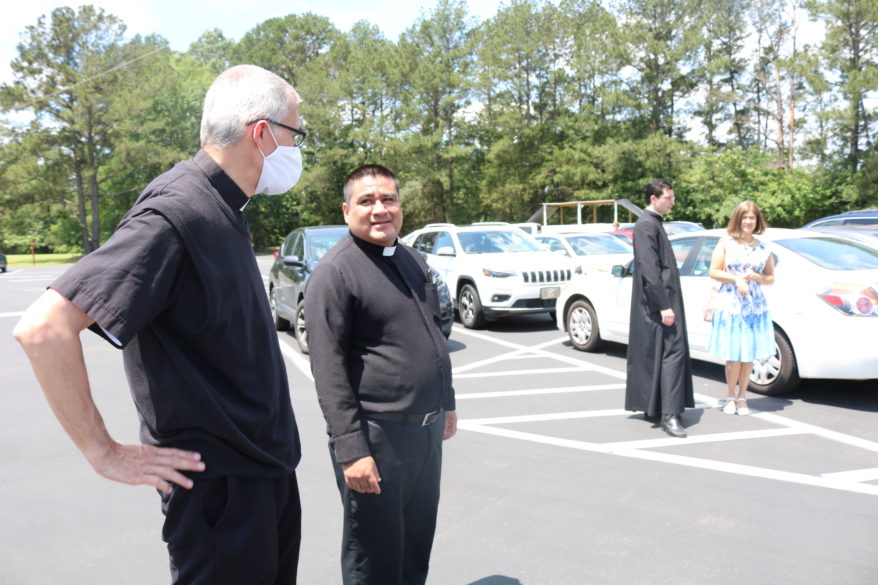
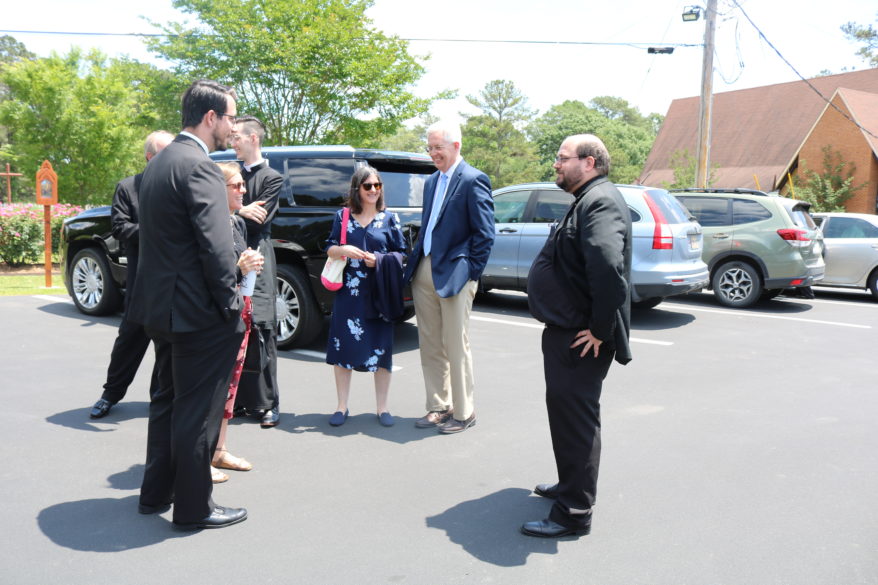
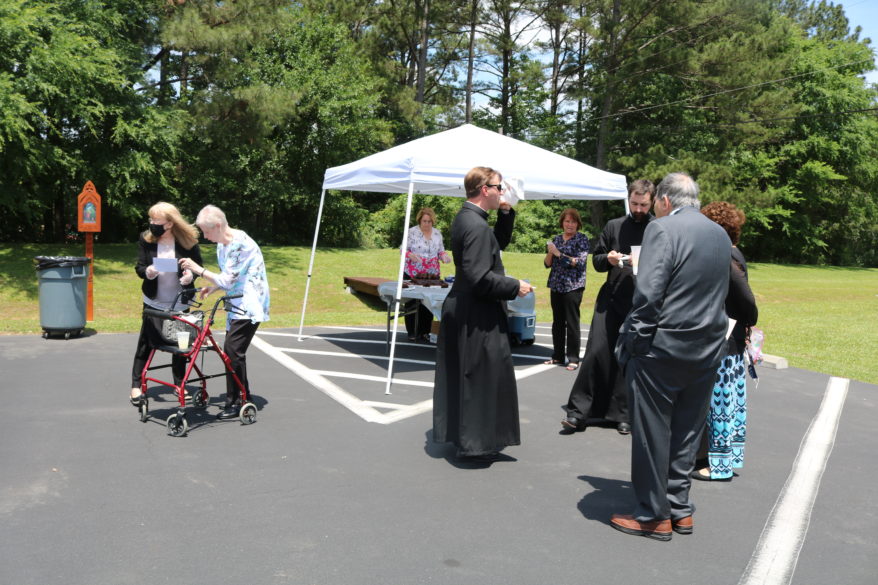

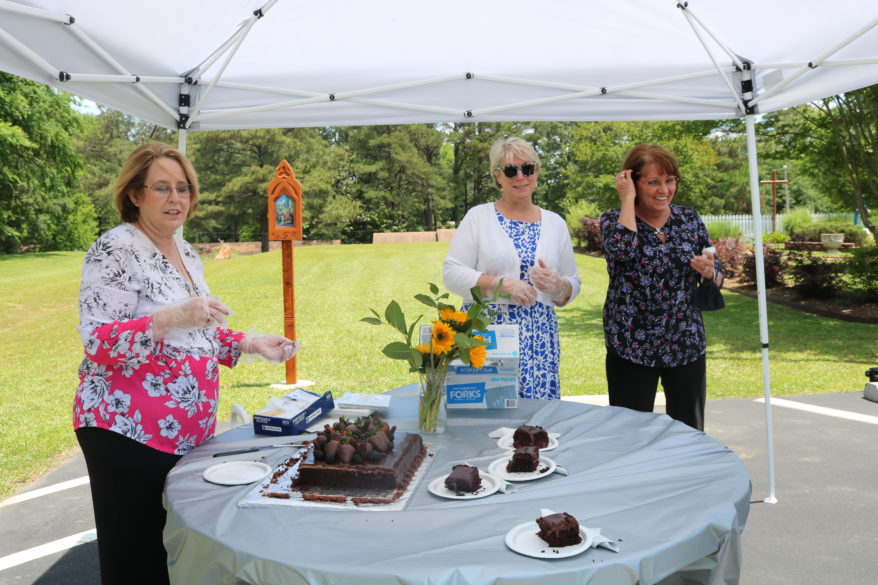
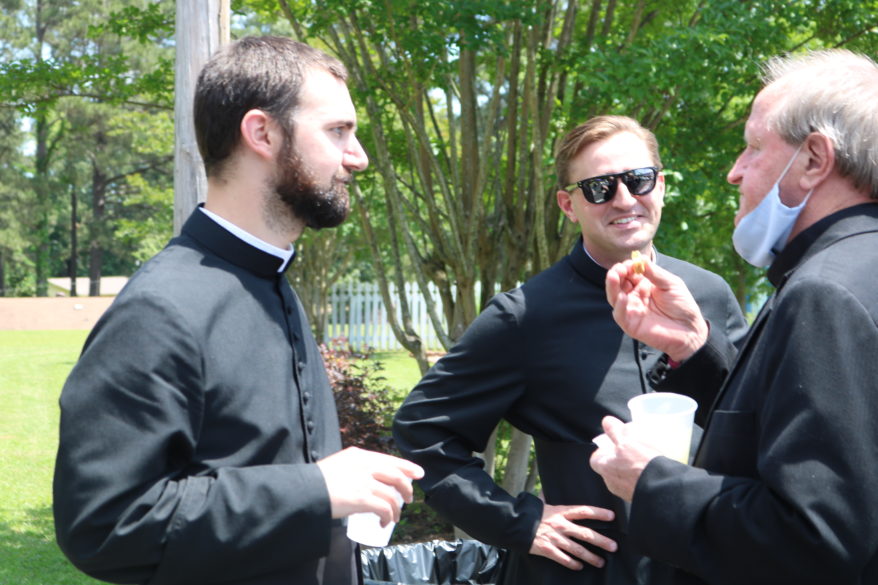
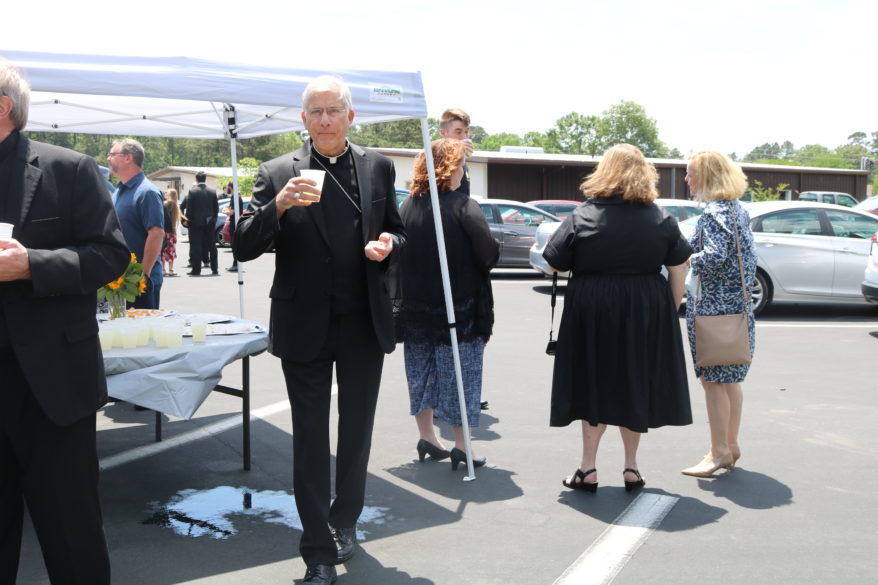
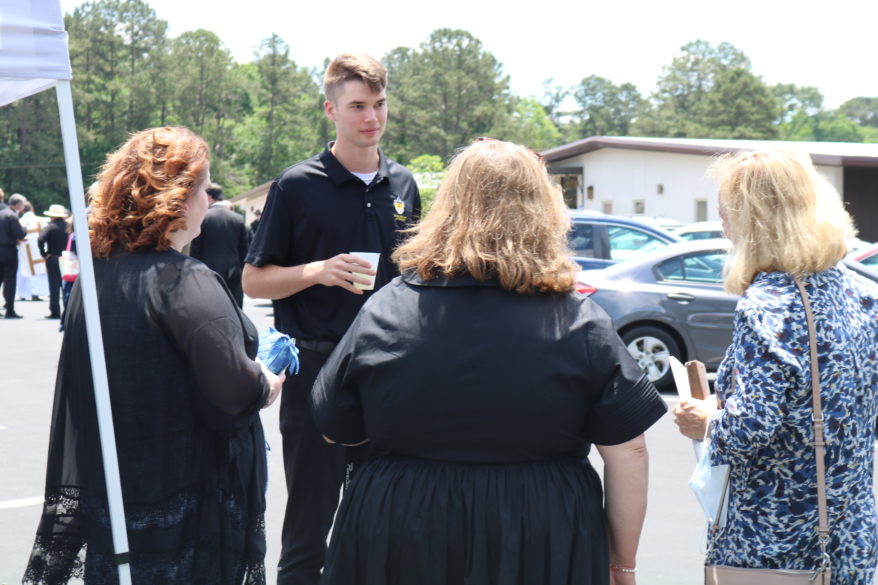
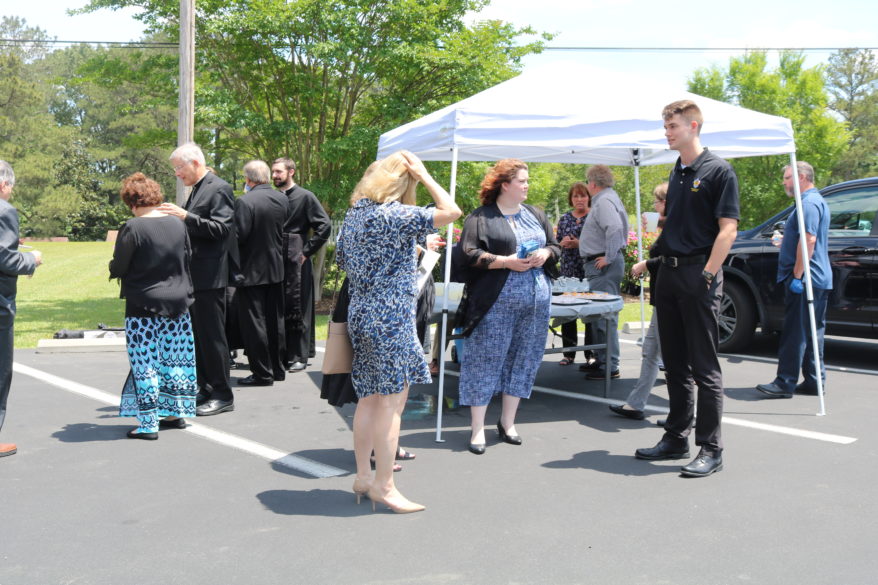
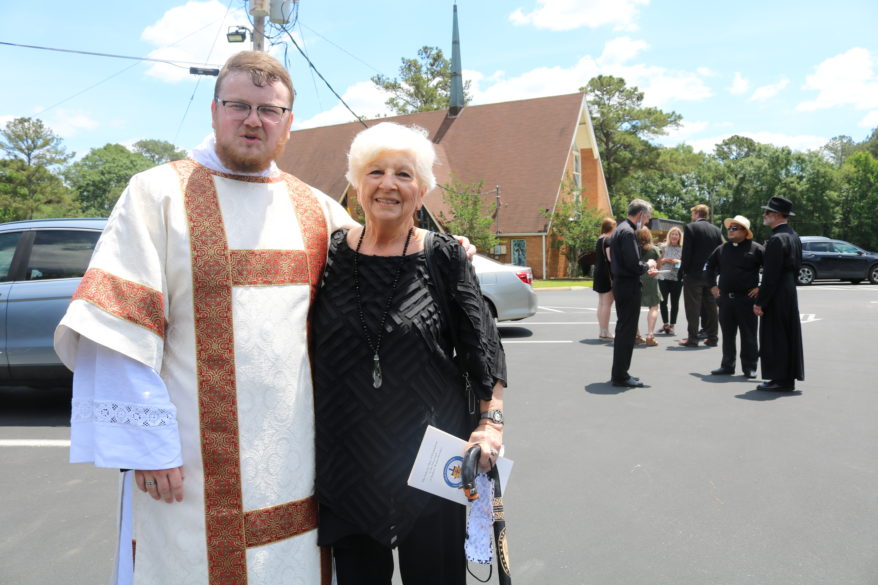
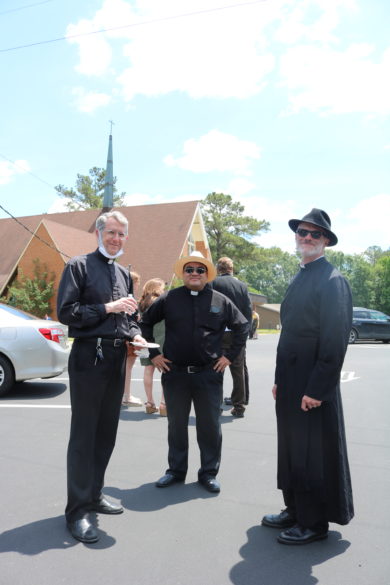
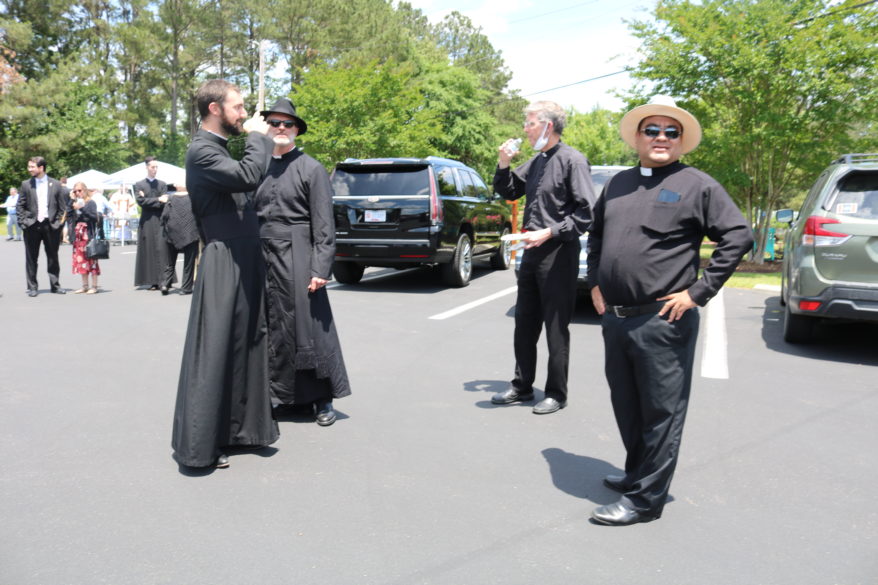
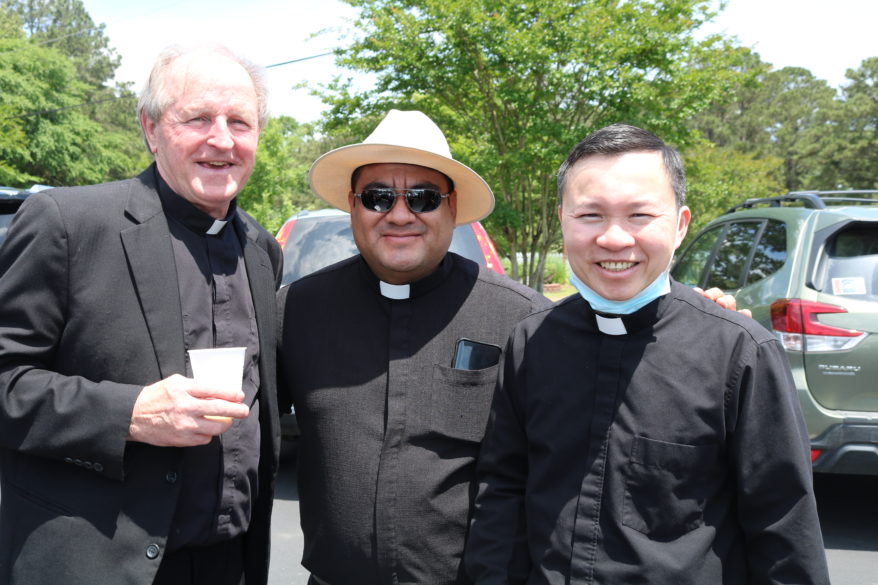
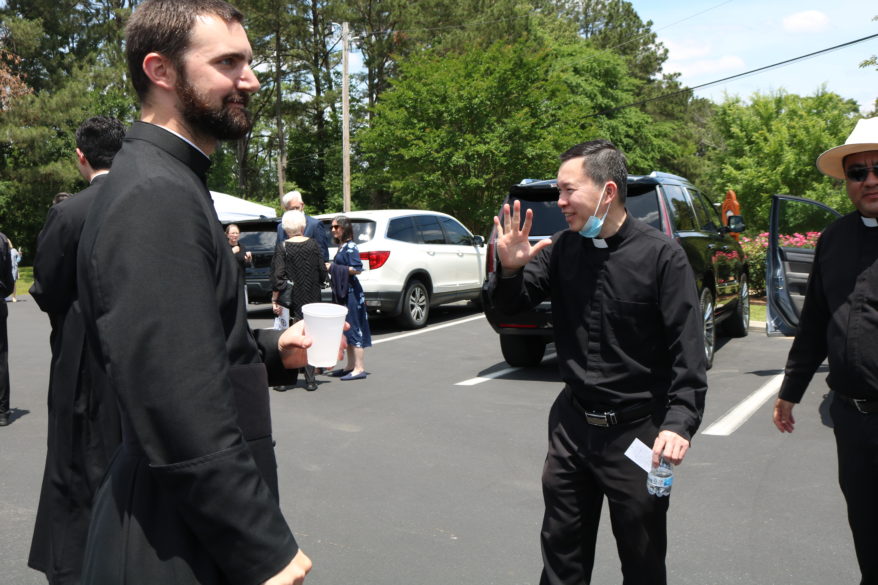
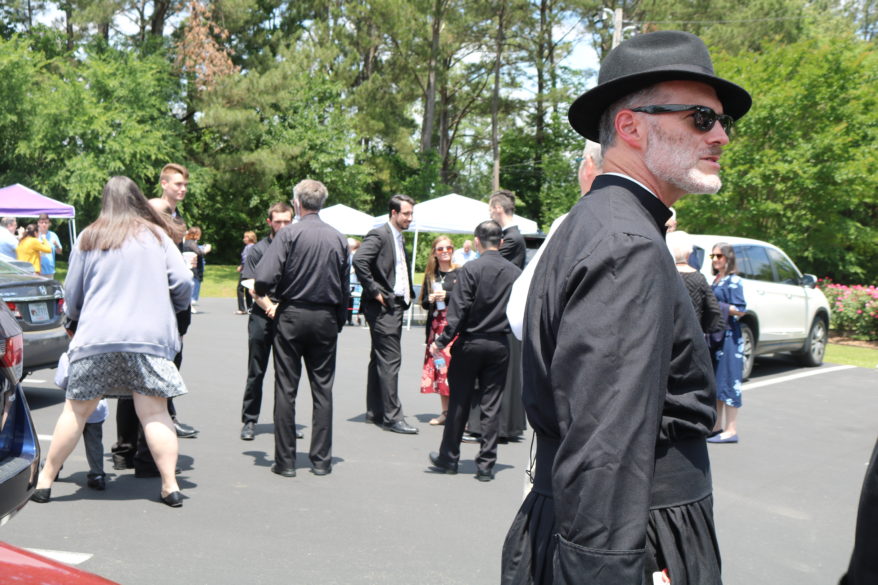
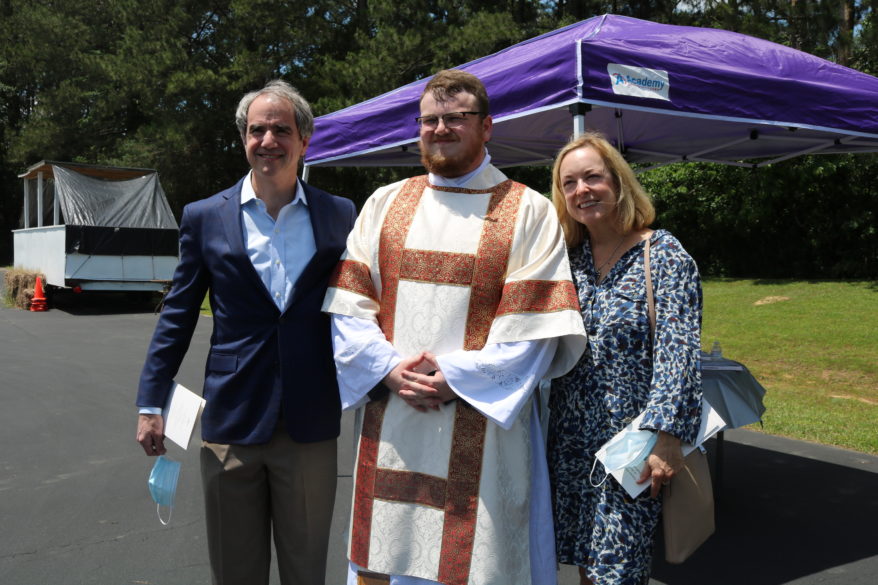
Language of love
In our uniqueness, the Lord calls each of us to repent and be reconciled to God for our own salvation and for the good of all.
By Bishop Joseph R. Kopacz, D.D.
While the nations rage the church eloquently proclaims in Pentecost faith: Lord Jesus, you came to gather the nations into the peace of God’s Kingdom. You come in word and sacrament to strengthen us in holiness. You will come in glory with salvation for your people. As we strive faithfully to fulfill the Great Commission of the Lord to make disciples of all the nations, we also embrace the enormous task of building the Kingdom of Heaven on earth wherever the Gospel is proclaimed, the signs of which are justice and peace, and joy in the Holy Spirit. (Romans 14:17)
The Holy Land upon which Jesus and his first disciples crisscrossed announcing the Kingdom of God, tragically remains relentlessly tormented by hatred, violence and warfare. The truce that ended the latest round of malice is as fragile as a birds’ nest in the midst of hungry predators. Yet, as disciples of the Lord in a universal church, the Holy Spirit impels us to overcome complacency and indifference, cynicism and despair for the sake of the common good and the salvation of all.
God’s dream for our world through the outpouring of the Holy Spirit is both deeply personal and inexorably universal. In our uniqueness, the Lord calls each of us to repent and be reconciled to God for our own salvation and for the good of all. This is a life lived in communities of faith in a world-wide church where uniqueness and diversity are intended to create bonds of unity. We look at the division in our church, nation and world and we wonder if unity and diversity are forever going to be out of reach.

When snared by this chaos, the Holy Spirit always redirects us back to Jesus and the power of the crucifixion, resurrection and ascension the divine outpouring in the first place. In the reading from Paul’s letter to the Galatians (5:19ff) on Pentecost Sunday, after acknowledging the darkness that dwells within each one of us, he illustrates the fruits of the Holy Spirit and the fountain from which they well up.
“Those who belong to Christ Jesus have crucified the flesh with its passions and desires. For if we live by the Spirit, let us walk also by the Spirit. Let us have no self-conceit, no provoking of one another, no envy of one another.” (5:24-25) It’s a big – if – that determines how we walk. It will determine whether we can create unity while cherishing diversity, or whether we will wallow in division, or worse, the violence, terror and war among nations.
In the midst of enormous divisions among the early Christian community in Corinth, marred by lawsuits, sexual immorality, disregard for the poor, abuses at the Lord’s supper, factions, and denial of the resurrection, to name a few, St. Paul remained steadfast in his belief that the Holy Spirit could bring divine order out of chaos. “There are a variety of gifts, but the same Spirit; there are varieties of service, but the same Lord; there are varieties of workings, but it is the same God who inspires them all in everyone. To each is given the manifestation of the Spirit for the common good.” (1Cor12:4-7)
What follows is a piece of the most heralded testimony ever composed on love. St. Paul penned it, “the more excellent way.”
“Love is patient and kind; love is not jealous or boastful; it is not arrogant or rude. Love does not insist on its own way; it is not irritable or resentful; it does not rejoice at wrong, but rejoices in the right. Love bears all things, hopes all things, endures all things.” (13:4-6) The Holy Spirit gave the Corinthians a way out of their chaos, and a path forward for every Christian community for all time, one generation to the next.
Historians and biblical scholars can puzzle over the Holy Spirit’s coming and its meaning 2000 years ago. But for those of us engaged in Christian ministry and outreach, there can be no doubt that the language being spoken then — and now — is the one any person can understand. It is the language of the Gospel, the Good News. It is the language of love. Yes, this is why Pentecost lives on.
Come Holy Spirit, fill the hearts of thy faithful, and enkindle in them the fire of thy love.
Leguaje del amor
“ Tener amor es saber soportar;
es ser bondadoso;
es no tener envidia, ni ser presumido,
ni orgulloso, ni grosero, ni egoísta;
es no enojarse ni guardar rencor;
es no alegrarse de las injusticias,
sino de la verdad.
Tener amor es sufrirlo todo, creerlo todo, esperarlo todo, soportarlo todo.” Co 13: 4-7.
Por Obispo Joseph R. Kopacz, D.D.
Mientras las naciones se encolerizan, la iglesia proclama elocuentemente en la fe del Pentecostés: Señor Jesús tu vienes a reunir a las naciones en la paz del Reino de Dios. Tu vendrás en palabra y sacramento para fortalecernos en santidad. Vendrás en gloria con salvación para tu pueblo. Mientras nos esforzamos fielmente por cumplir la Gran Comisión del Señor de hacer discípulos en todas las naciones, también aceptamos la enorme tarea de construir el Reino de los Cielos en la tierra dondequiera que se proclame el Evangelio, Romanos 14:17, cuyos signos son la justicia, la paz y el gozo en el Espíritu Santo.

La Tierra Santa en la que Jesús y sus primeros discípulos se cruzaron para anunciar el Reino de Dios, sigue trágicamente atormentada sin tregua por el odio, la violencia y el conflicto guerrerista. La tregua, que puso fin a la última ronda de malicia, es tan frágil como un nido de pájaros en medio de depredadores hambrientos. Sin embargo, como discípulos del Señor en una iglesia universal, el Espíritu Santo nos impulsa a superar la complacencia y la indiferencia, el cinismo y la desesperación por el beneficio común y la salvación de todos.
El sueño de Dios para nuestro mundo, a través del derramamiento del Espíritu Santo, es profundamente personal e inexorablemente universal. En nuestra condición de seres únicos, el Señor llama a cada uno de nosotros a arrepentirnos y reconciliarnos con Dios por nuestra propia salvación y por el bien de todos. Esta es una vida en comunidades de fe, de una iglesia mundial, donde la singularidad y la diversidad están destinadas a crear lazos de unidad. Cuando vemos la división en nuestra iglesia, nación y mundo nos preguntamos si la unidad y la diversidad estarán siempre fuera de nuestro alcance.
Cuando estamos atrapados por este caos, el Espíritu Santo siempre nos redirige de regreso a Jesús, derramamiento máximo divino, por el poder de la crucifixión, resur-
rección y ascensión. En la lectura de la carta de Pablo en Gálatas 5:19ss en el domingo de Pentecostés, después de reconocer la oscuridad que habita dentro de cada uno de nosotros, se ilustran los frutos del Espíritu Santo y la fuente de la que brotan.
“Y los que son de Cristo Jesús, ya han crucificado la naturaleza del hombre pecador junto con sus pasiones y malos deseos. Si ahora vivimos por el Espíritu, dejemos también que el Espíritu nos guíe.“ Ga 5: 24-25 Es muy importante si vivimos por el Espíritu, pues eso determina cómo caminamos; determinará si podemos crear unidad mientras apreciamos la diversidad, o si nos revolcaremos en la división o, peor aún, en la violencia, el terror y la guerra entre las naciones.
En medio de enormes divisiones entre la comunidad cristiana primitiva en Corinto, empañada por juicios, inmoralidad sexual, desprecio por los pobres, abusos en la Cena del Señor, facciones y negación de la resurrección por nombrar algunos, San Pablo se mantuvo firme en su creencia de que el Espíritu Santo podía sacar el orden divino del caos. “Hay en la iglesia diferentes dones, pero el que los concede es un mismo Espíritu. Hay diferentes maneras de servir, pero todas por encargo de un mismo Señor. Y hay diferentes manifestaciones de poder, pero es un mismo Dios, que, con su poder, lo hace todo en todos. Dios da a cada uno alguna prueba de la presencia del Espíritu, para provecho de todos.” 1Co12: 4-7
Lo que sigue es una parte del testimonio más anunciado compuesto sobre el amor y que San Pablo escribió de “la manera más excelente.”
“Tener amor es saber soportar; es ser bondadoso; es no tener envidia, ni ser presumido, ni orgulloso, ni grosero, ni egoísta; es no enojarse ni guardar rencor; es no alegrarse de las injusticias, sino de la verdad. Tener amor es sufrirlo todo, creerlo todo, esperarlo todo, soportarlo todo.” Co 13: 4-7 El Espíritu Santo les dio a los corintios una salida de su caos y un camino a seguir para cada comunidad cristiana de todos los tiempos, de una generación a la siguiente.
Los historiadores y los eruditos bíblicos pueden desconcertar la venida del Espíritu Santo y su significado hace 2000 años. Pero para aquellos de nosotros que estamos comprometidos con el ministerio cristiano y la divulgación, no puede haber duda de que el idioma que se hablaba entonces y ahora, es el que cualquier persona puede entender. Es el lenguaje del Evangelio, la Buena Nueva. Es el lenguaje del amor. Sí, es por eso por lo que Pentecostés sigue vivo.
Ven Espíritu Santo, llena los corazones de tus fieles y enciende en ellos el fuego de tu amor.
Pope appeals for peace in Holy Land, says death of children ‘unacceptable’
By Cindy Wooden
VATICAN CITY (CNS) – The injury and death of so many innocent people, especially children, caused by escalating violence between Israel and the Gaza Strip is “terrible and unacceptable,” putting the area at risk of sinking into “a spiral of death and destruction,” Pope Francis said.
The pope launched an appeal for calm and asked leaders of both sides “to put a stop to the roar of weapons and to follow the paths of peace, even with the help of the international community,” he said May 16 after reciting the “Regina Coeli” prayer with hundreds of people in St. Peter’s Square.
“Many people have been injured and many innocent people have died. Among them are even children, and this is terrible and unacceptable. Their death is a sign that one does not want to build the future, but wants to destroy it,” he said.
The growing hatred and violence in different cities in Israel “is a serious wound to fraternity and to peaceful coexistence among citizens, which will be difficult to heal if we do not open immediately to dialogue,” the pope said, asking, “Where will hatred and vengeance lead? Do we really think we can build peace by destroying the other?”
The pope appealed for calm, a cease-fire and constant prayers so that “Israelis and Palestinians may find the path of dialogue and forgiveness, to be patient builders of peace and justice, opening up, step by step, to a common hope, to a coexistence among brothers and sisters.”

He then led those gathered in the square in praying the Hail Mary for the victims, the children and for peace.
Meanwhile, the head of the Vatican’s press office, Matteo Bruni, confirmed that Pope Francis spoke over the telephone May 17 with Turkey’s President Recep Tayyip Erdogan.
While the Vatican did not comment on the content of the conversation, the Turkish communications department said the two leaders discussed the ongoing attacks.
According to a written statement reported by Andalou Agency, Erdogan said Israel’s attacks were an atrocity and that the latest violations were putting regional security in danger.
Pope Francis’ appeal May 16 came as Israel escalated its assault on Gaza and it also faced growing civil unrest in its mixed Jewish-Arab cities.
Jewish mobs had destroyed Arab property, and Arab mobs attacked Jewish businesses and burned synagogues, with attempted lynchings on both sides over the past week.
The violence between Israel and Hamas was at its worst since the 2014 Gaza War with Israeli airstrikes and hundreds of rockets launched from the Gaza Strip killing at least 145 Palestinians and 10 Israelis, according to Reuters May 16. Efforts by the international community were underway to broker a cease-fire.
Called by name
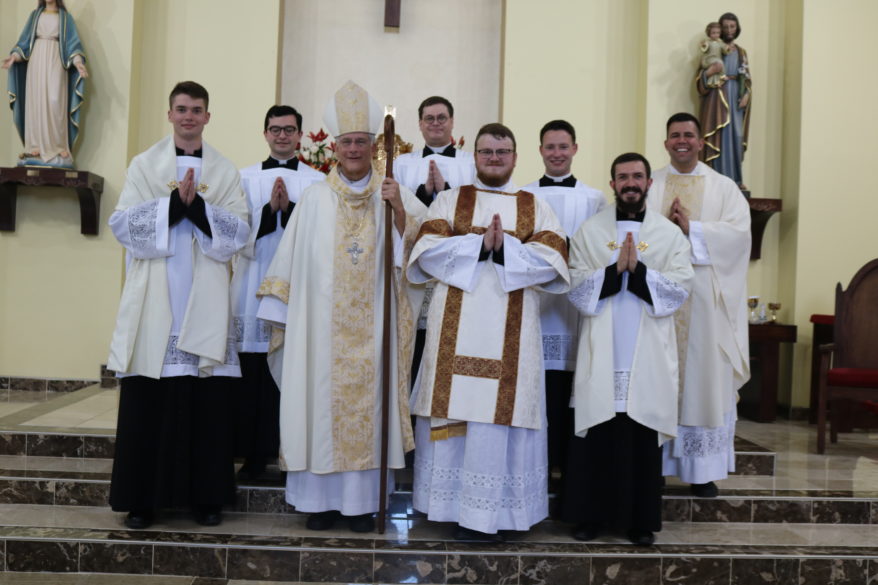
It takes a village to raise a child. It also takes a village to raise priests and religious for our parishes, schools and ministries. I spent some time in Little Rock, Arkansas in early May to discover why the heck they have so many seminarians. They have about 30 seminarians and about 25 of them are from Arkansas. They also have nine men and women who are studying for religious life. This is Little Rock, not New Orleans. This is a diocese that is 5% Catholic and very rural. And they have 30 seminarians and nine men and women studying for religious life! I studied their vocations poster, and it reveals a diverse cast of characters representing many corners of their very large diocese. There are some wonderful missionaries who have come to study for the diocese, but the vast majority come from within.
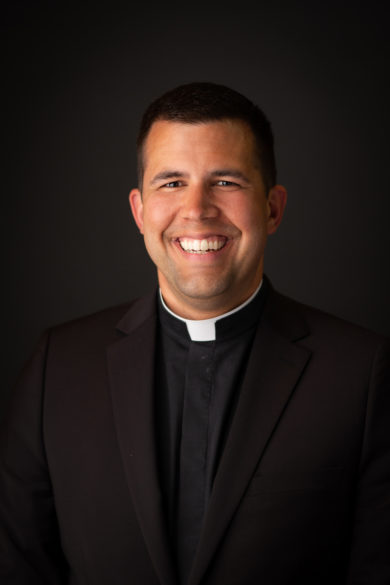
I left my visit extremely fired up: we can do this! The thing that impressed me most about Little Rock’s program is the culture that has been built over years of collaboration between the Vocation Department, the Bishop’s Office and the Chancery, parish leadership, and the people of God. Everything in that department is geared toward serving the people of God in Arkansas. There is a clear message that God could be calling you to serve, and we are going to support you in that call. It takes a village, and we are that village.
This sort of support is certainly present in communities in our diocese. It took a village for Andrew Bowden to be ordained as Deacon Andrew Bowden on May 15. It took a village for Tristan Stovall to be supported through the RCIA process in Philadelphia and finally to see him off to seminary formation. It took the villages of St. Paul Flowood, St. Richard and St. Joseph Schools and St. Joseph Starkville to inspire Will Foggo to enter the seminary this past year. But we can create a bigger, more cohesive village, and that’s what I learned in Little Rock. This summer I hope our village gets a little bigger as I host our first ever Quo Vadis? Young Men’s Retreat. This fall I hope it gets even bigger with our second annual Homegrown Harvest Seminarian Gala. And I also understand that this village will not be built overnight, and I am not building it alone. If you have ideas or just want to get involved in supporting our seminarians and young men and women who are discerning, please let me know. You can always email me at nick.adam@jacksondiocese.org. There are great things happening in the church, and there are great things happening in our diocese. Please continue to pray for vocations, and live in great hope, because the Lord will respond to these prayers, and we need to support one another as we look to build up our culture of vocations.
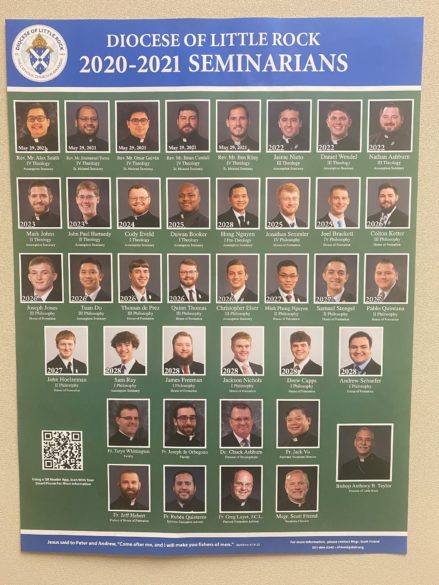
Pneuma: can you hear me now?
From the hermitage
By sister alies therese
The ‘season of the Spirit’ is upon us and have we used the many opportunities to explore the ‘beauty?’ As we ‘turn green’ from the glory of Easter/Pentecost’s golds and reds we are called to practically live out what has been given. We discover in the Scriptures and from contemporary writers, the various ways this Pneuma has been heard and experienced. What sort of life might we live having received such ourselves? How do we set ourselves up to receive? How do we respond to the generosity and kindness of God?
Carlo Carretto, (Selected Writings, 1994, Ellsberg, Ed. page 83) … points us to our reality:
“And then, what do rocks matter? What matters is Christ’s promise, what matters is the cement that binds the rocks into one: the Holy Spirit. The Holy Spirit alone can build the Church with stones as ill-hewn as we.”
To admit I am ill-hewn is always an ‘ouch’ as I’m pretty sure God meant better for us! But the Spirit shows me a different picture and promises to transform. Pope Francis in the Joy of the Gospel (2013) speaks of:
“Spirit-filled evangelizers, fearlessly open to the working of the Holy Spirit … Jesus wants evangelizers who proclaim the good news not only with words but above all a life transfigured by God’s presence…”
And then the Scriptures showed us:
“A strong heavy wind was rending the mountains and crushing the rocks before the Lord — but the Lord was not in the wind … and after the fire there was a whispering sound. When he heard this Elijah hid his face in his cloak.” (1Kings 9)
“The tiny whisper is imperceptible and tells of the spirituality of God. It was fitting Elijah, whose mission it was to re-establish the covenant and restore the pure faith, would have returned to Horeb where the covenant was revealed to Moses and through him to Israel’s people.” (NAB, notes, page 336)
Have we heard the driving wind or the small voice? God is generous, clearly a hope in us that we don’t miss our call, indeed, that we get the memo!
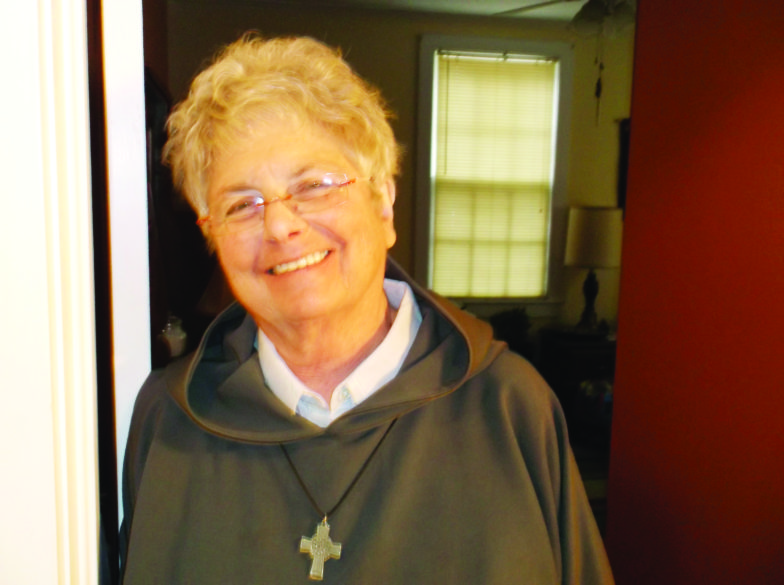
“From up in the sky there came a noise like a strong, driving wind: the wind and the Holy Spirit are associated in John 3:8: ‘the wind blows where it will. You hear the sound it makes but you do not know where it comes from nor where it goes. So it is with everyone begotten of the Spirit.’” (NAB, notes, page 1172)
I don’t know where I’m going half the time (perhaps not in an ‘ultimate sense’). Is this a blessing of aging? Anyway, this Spirit does not just call on us once … or even twice. Frequently we can hear that whisper, or large boom, when we are at prayer, or trying to pray. Note:
CCC 2623: On the day of Pentecost, the Spirit of the Promise was poured out on the disciples, gathered ‘together in one place. While awaiting the Spirit, ‘all these with one accord devoted themselves to prayer.’ The Spirit who teaches the church and recalls for her everything Jesus said was also to form her in a life of prayer.”
CCC 2655: …Prayer internalizes and assimilates the liturgy during and after celebration. Even when it is lived out ‘in secret’, prayer is always the prayer of the church; it is a communion with the Holy Trinity.’
So, the coming of God’s Spirit is really to form us ill-hewn ones for prayer, for that marvelous encounter with Jesus. If God, as Spirit, has gotten our attention, what next? W. H. Auden in Prayer, the Nature of in a Certain World, 1970, writes:
“To pray is to pay attention to something or someone other than oneself. Whenever one so concentrates attention…that one completely forgets the ego and desires, one is praying.
To forget my ego … ah, that is where I am indeed ill-hewn! You?
In Praying With Icons, Jim Forest, 1997, points out:
“When the Most High came down and confused the tongues, God divided the nations. But when God distributed tongues of fire, God called everyone to unity. Therefore with one accord we glorify the all-Holy Spirit.” — Kontakion for Pentecost
How is this Spirit wending her way through our pandemic ridden world? Are we not, indeed a people in darkness awaiting illumination? Are we not a people called to unity, burned together by this fire? This unity comes in prayer and action, and trust in an unseen God.
Finally, in The Word in the Desert, Douglas Burton-Christie 1993, mentions Abba Cronius, who reminds the brothers/sisters that “vigilance, singlemindedness, and abandonment to God’s will gives birth to the Holy Spirit in one’s soul.” (page 207)
We pray the Spirit will give us just these graces for that birth that we might together glorify God, ill-hewn as we are.
Blessings.
(Sister alies therese is a canonically vowed hermit with days formed around prayer and writing.)
Rich kids growing up without money – or understanding
IN EXILE
By Father Ron Rolheiser, OMI
Gloria Steinem once confessed that, while never having been overweight, she has always been concerned about her weight because the genes she inherited from her parents predisposed her in that direction. So, she says, I think of myself as a fat woman who is slim at the moment. Her comment helped me to understand something I misunderstood years before in a classroom.
Early on in my seminary studies, taking a course on the sociology of poverty, I was struggling to accept our professor’s explanation as to why poverty isn’t always the consequence of personal failure, but is often the product of unchosen circumstances, accidents and misfortune. Many of us in the class weren’t buying it, and this was our logic. Most of us had come from very humble economic backgrounds and believed that we had pulled ourselves up by our own bootstraps. Why couldn’t everyone else do the same?
So we protested: we grew up poor. We didn’t have any money. We didn’t get free school lunches. We had to work to pay for our clothes and books. Our parents never took any handouts. Nobody helped them – they took care of themselves. So have we, their kids. We resent those who are getting things for nothing. Nothing came to us free! We’ve earned what we have.

Our professor answered by telling us that this is precisely why we needed a course on the sociology of poverty. He wasn’t buying the notion that we had grown up poor and had earned things by our own hard work. Then, this surprising phrase: “None of you were poor as kids; you were rich kids who grew up without money; and where you are today isn’t just the result of your own hard work, it’s also the result of a lot of good fortune.”
It took me years (and Gloria Steinem’s comment) to understand he was right. I was a rich kid who grew up in a family without money. Moreover, so much of what I naively believed that I’d earned by my own hard work was in fact very much the product of good fortune.
I doubt our society understands that. A number of popular clichés have us believe that one’s background should never be an excuse for not being a success in this world, that success is open equally to everyone. We’ve all inhaled the clichés. Any poor kid can grow up to be President of this country! Any poor kid can go to Harvard! Anybody industrious can make a success of his or her life! There’s no excuse for any healthy person not having a job!
Is this true? Partially, yes; kids from poor economic backgrounds have become president, thousands of poor kids have found entrance into the best universities, countless kids who grew up poor have been highly successful in life, and people who are motivated and not lazy generally do make a success of their lives. However, that’s far from the whole story.
What really makes for the separation of rich and poor in our world? Is everyone really on equal footing? Is it really virtue that makes for success and lack of it that makes for failure?
In a best-selling book, Elderhood, Louise Aronson, makes this comment about her mother and Queen Elizabeth, both who aged wonderfully and gracefully: “They both were born into privilege: white, citizens of developed countries, wealthy and educated. Both were gifted with great genetic DNA, and both had the good fortune of not ever having been assaulted, abused, felled by cancer, or in a debilitating car accident. … These advantages are not a matter of character. Indeed, willpower and capacity for wise decisions are often by-products of fortunate lives.” (Emphasis, mine)
Success isn’t predicated only on personal character, hard work and dedication. Neither is failure necessarily the result of weakness, laziness, and lack of effort. We aren’t all born equal, set equally into the same starting blocks, have equally gifted or abusive childhoods, are allotted equally the same opportunities for education and growth, and then are parceled out equally the same measure of accidents, illness and tragedy in life. However, it’s because we naively believe that fortune is allotted equally to all that we glibly (and cruelly) divide people into winners and losers, judge harshly those we deem losers, blame them for their misfortunes, and congratulate ourselves on what we have achieved, as if all the credit for our success can be attributed to our own virtue. Conversely, we see those who are poor as having only themselves to blame. Why can’t they pull themselves up by their bootstraps? We did!
But … some of us have genes that predispose us to become fat, some of us are rich kids who grow up without money, and willpower and capacity for wise decisions are often the products of a fortunate life rather than a matter of character. Recognizing that can make us less cruel in our judgments and far less smug in our own successes.
(Oblate Father Ron Rolheiser is a theologian, teacher and award-winning author. He can be contacted through his website www.ronrolheiser.com.)
High court to hear major abortion case from Mississippi in its next term
WASHINGTON (CNS) – The U.S. Supreme Court said in a May 17 order that it will hear oral arguments during its next term on a 2018 Mississippi abortion law banning most abortions after 15 weeks of pregnancy.
The case is Dobbs v. Jackson Women’s Health Organization. The court’s term opens in October and a decision is expected by June 2022.
Just after then-Mississippi Gov. Phil Bryant signed the law March 19, 2018, a federal judge blocked it temporarily from taking effect after the state’s only abortion clinic filed suit, saying it is unconstitutional. The U.S. Court of Appeals for the Fifth Circuit upheld the block on the law.
In commending Bryant for his signature, the state’s Catholic bishops, Bishop Joseph R. Kopacz of Jackson and Bishop Louis F. Kihneman III of Biloxi, said: “(We) wish to reaffirm the sacredness of human life from conception until natural death. With Pope St. John Paul II, we recognize abortion as ‘a most serious wound inflicted on society and its culture by the very people who ought to be society’s promoters and defenders.’”
In 2020, the Jackson and Biloxi dioceses filed a friend-of-the-court brief in support of Mississippi Attorney General Lynn Fitch’s petition to the Supreme Court asking it to review the 5th Circuit’s ruling prohibiting the state from enforcing the law.
The high court should clarify current law on abortion “in light of a state’s interests in protecting the sanctity of life,” the dioceses’ brief said.
A number of states have passed laws restricting abortion that have been challenged in court by supporters of legal abortion. Pro-life advocates have been hoping one or more of those laws would be taken up by the Supreme Court as a way to challenge 1973’s Roe v. Wade decision legalizing abortion.
The Mississippi case will be the first abortion case the court will consider since the Oct. 26, 2020, confirmation of now-Justice Amy Coney Barrett, President Donald Trump’s third pick for the court. His first two picks, Justices Brett Kavanaugh and Neil Gorsuch, were on the court when it took up its first major abortion decision since they were confirmed.
The case was a Louisiana law requiring abortion providers to have admitting privileges at local hospitals.
The court struck it down as unconstitutional in a 5-4 ruling. Chief Justice John Roberts joined Justices Stephen Breyer, Sonia Sotomayor, Elena Kagan and Ruth Bader Ginsburg in knocking down the law. Kavanaugh and Gorsuch joined Justices Samuel Alito and Clarence Thomas in upholding the law.

The upcoming Mississippi case – it has been on the Supreme Court’s docket as a potential case since last fall – will examine the question of viability, specifically if a fetus can survive on its own at 15 weeks.
Pro-life advocates were pleased with the court’s decision to take this case.
“We applaud the U.S. Supreme Court for examining the Mississippi law,” said Carol Tobias, president of National Right to Life, who stressed that so much more is known now about viability with advanced technology.
Eric Scheidler, executive director of the Pro-Life Action League based in Chicago, said many activists see this as “an opportunity for the high court to overturn Roe v. Wade” or at the very least to “bring abortion policy in the United States in line with rest of the world, where abortion is strictly limited after 12-15 weeks.”
Similarly, Jeanne Mancini, president of March for Life, said the United States “is one of only seven countries – including China and North Korea – that allows abortions through all nine months of pregnancy.”
“An overwhelming majority of Americans agree that this goes way too far,” she said. “In fact 70% think abortion should be limited to – at most – the first three months of pregnancy.”
In a May 17 statement she added: “States should be allowed to craft laws that are in line with both public opinion on this issue as well as basic human compassion, instead of the extreme policy that Roe imposed.”
Thomas Olp, vice president and senior counsel for the Thomas More Society, a nonprofit national public interest law firm, said his firm, on behalf of Illinois Right to Life, has “argued against the now long-outdated science behind Roe v. Wade and urged the court to uphold the subsequent 14th Amendment rights due the preborn.”
Activists were not the only ones to respond in favor of the court taking the case.
Sen. Steve Daines, R-Mont., chair of the new Senate pro-life caucus, tweeted May 17 that he was encouraged the court decided to hear it.
“There is no constitutional right to abortion, yet for nearly 50 years since Roe v. Wade was wrongly decided, more than 62 million children have been the tragic victims of abortion. It is long past time for the Supreme Court to right this wrong,” he said.
O. Carter Snead, law school professor at the University of Notre Dame, said the court agreeing to take this case “signals the possibility that it may finally end its failed and constitutionally unjustified experiment as the nation’s ad hoc abortion regulatory body of last resort.”
He said the court’s “tortured reading of the Constitution has undermined the rule of law, broken our electoral politics and resulted in a staggering number of lives lost. It is time once and for all for the Supreme Court to return to its role as faithful interpreter of the Constitution and to repair the damage it caused years ago.”
